




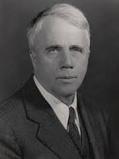

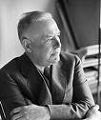



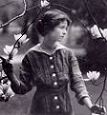
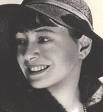
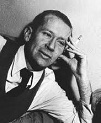
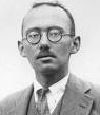





















TLW's American Poet Historyscope |
By T.L. Winslow (TLW), the Historyscoper™ |
© Copyright by T.L. Winslow. All Rights Reserved. |
Original Pub. Date: Aug. 27, 2015. Last Update: Oct. 8, 2018. |




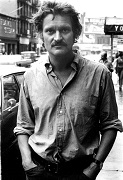
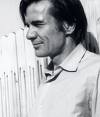


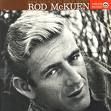








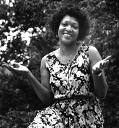
Westerners are not only known as history ignoramuses, but double dumbass history ignoramuses when it comes to American poetry and American poet history. Since I'm the one-and-only Historyscoper (tm), let me quickly bring you up to speed before you dive into my Master Historyscope.
In 1708 London-born atty. Ebenezer Cooke (1667-1732) of Prince George's County, Md. pub. The Sot-Weed Factor: Or, a Voyage to Maryland, a Satyr in which is describ'd the Laws, Governments, Courts and Constitutions of the Country; and also the Buildings, Feasts, Frolocks, Entertainments and Drunken Humours of the Inhabitants of that Part of America in Burlesque Verse; rev. 1731; the first Am. satire?; basis of John Barth's 1960 novel "The Sot-Weed Factor".

In 1827 after being orphaned at age two, taken in by John and Frances Allan of Richmond, Va., then kicked out because of his gambling debts, attending the U. of Va. for one year before running out of money, and enlisting in the U.S. Army in 1827 under an alias, Boston, Mass.-born Edgar Allan Poe (1809-49) pub. his first book Tamerlane and Other Poems under the alias "By a Bostonian". In 1831 he is expelled from West Point after 6 mo. for alcoholism, declaring his desire to become a writer and poet, pub. Poems of Edgar A. Poe; incl. To Helen (in honor of Jane Stanard, mother of a childhood friend), Israfel. On Aug. 28, 1835 (Fri.) the first article in the Great Moon Hoax series by Richard Adams Locke (1800-71) (descendant of British philosopher John Locke) appears in the New York Sun, claiming that a new telescope has revealed that the Moon is inhabited by 4-ft.-tall flying man-bats along with unicorns and beavers; Edgar Allan Poe claims he was plagiarized. On May 16, 1836 27-y.-o. Edgar Allan Poe (b. 1809) marries his 13-y.-o. first cousin Virginia Eliza Clemm (1822-47), who dies of TB, launching his drunken downhill slide, immortalizing her as Lenore. On May 22, 1841 he pub. The Sleeper (from his 1831 poetry collection) in the Philadelphia Saturday Courier; he considers it to be his best poem, better than "The Raven". On June 21 Fordham U. (originally St. John's College until 1907) is founded in Tarrytown, N.Y. is founded by the Catholic Diocese of New York under the care of the Jesuits, becoming the first Roman Catholic higher ed. inst. in the NE U.S., receiving a charter from the New York legislature in 1846, and opening a chapter in Manhattan, N.Y., which becomes the independent College of St. Francis Xavier in 1861; in 1847 poet Edgar Allan Poe arrives in Fordham, N.Y., becoming lifelong friends with the college Jesuits, pub. "The Bells" in 1849; sports teams are called the Rams; alumni incl. Vince Lombardi, Pres. Donald Trump, Geraldine Ferraro, Andrew Cuomo, William J. Casey, John N. Mitchell, John O. Brennan, Cardinal Francis Spellman, Wellington Mara, Charles Osgood, G. Gordon Liddy, Denzel Washington, Alan Alda, Dylan McDermott, Mary Higgins Clark, Don DeLillo, Bob Keeshan, John LaFarge, and historian John Gilmary Shea. In 1842 he pub. The Masque of the Red Death: A Fantasy (short story); Prince Prospero hides from the plague in his abbey, then holds a masquerade ball in seven rooms each decorated in a different color, which is barged in on by a mysterious figure in an empty costume who walks through each room, causing everybody to die; also The Pit and the Pendulum; a prisoner of the Spanish Inquisition recounts his tortures; "Down - still unceasingly still inevitably down!... I shrunk convulsively at its every sweep." On Jan. 29, 1845 his poem The Raven is pub. in the New York Evening Mirror, making him famous; "Once upon a midnight dreary,/ as I pondered weak and weary"; Lenore?; too bad, he stinks himself up by accusing Henry Wadsworth Longfellow of plagiarism, and showing up drunk for a public appearance in Boston. In 1847 he pub. Ulalume; a man takes a walk one night in "lonesome October", ending up at the vault of his "lost Ulalume" exactly 1 year after burying her. On Oct. 7, 1849 Am. "The Raven", "The Case of Amontillado", "Masque of the Red Death" #1 horror writer Edgar Allan Poe (b. 1809) dies in Baltimore, Md. after being found delirious from a drinking binge on Oct. 3 at the Horse You Came In On Saloon in Fell's Point (founded 1775), repeatedly calling the name "Reynods" (allergy, rabies, diabetes, murdered?); dies 10 days before a planned marriage with 2nd wife Sarah Elmira Royster Shelton (his boyhood sweetheart), atempting to accompany Mrs. Clemm to it; his cousin Neilson Poe doesn't announce his death publicly, and only 10 show up for his funeral; the train carrying his tombstone crashes; his lit. executor Rufus Griswold pub. a mean obituary that damages his rep for decades until he is rediscovered by Charles Baudelaire, Stephane Mellarme, and Paul Valery; he finally gets a proper funeral in 2009; last words: "The best thing a friend could do for me is blow my brains out... Lord help my poor soul"; his home at 85 W. 3rd St., New York City is later claimed to be haunted; beginning on Jan. 19, 1949, the Poe Toaster, a mysterious stranger dressed in black and wearing a fedora hat begins laying three roses and a half-filled bottle of cognac on Poe's grave marker in Baltimore for his birthday, and in 1977 Poe House curator Jeff Jerome begins holding a vigil for him; in 1993 he leaves a note saying "The torch will be passed"; in 2001 he leaves a note mentioning the NFL Baltimore Ravens; in 2007 former ad exec Sam Porpora (1915-) claims to be him - the good die young? Shortly after his death his last poem Annabel Lee is pub.

In 1835 Portland, Maine-born Henry Wadsworth Longfellow (1807-82) pub. his first poetry book Outre-Mer: A Pilgrimage Beyond the Sea. In 1839 he pub. Voices of the Night. In 1841 he pub. Ballads and Other Poems; incl. The Village Blacksmith, The Wreck of the Hesperus (about the Jan. 6, 1839 shipwreck of the Favorite off Norman's Woe, Gloucester, Mass.). In 1842 he pub. Poems on Slavery, his first public support of abolition, "so mild that even a Slaveholder might read them without losing his appetite for breakfast." In 1847 he pub. Evangeline: A Tale of Acadie; Evangeline Bellefontaine of Grande-Pre in Acadia searches for her lost love Gabriel Lajeunesse during the Acadian Expulsion; "This is the forest primeval. The murmuring pines and the hemlocks,/ Bearded with moss, and in garments green, indistinct in the twilight,/ Stand like Druids of eld, with voices sad and prophetic." (first lines) In 1851 he pub. The Golden Legend; Lady Irmingard, Walter, Abbot Ernestus, Friar Claus, Prince Henry, Herod, Barbarossa, Elsie, and Lucifer, On Nov. 10, 1855 he pub. The Song of Hiawatha (of the Chippewas), a bestseller (50K copies), set at the Pictured Rocks on the S shore of Lake Superior; Hiawatha and his lover Minnehaha; Hiawatha's mother Wenonah and grandmother Nokomis; "the Priest of Prayer, the Pale-face" AKA the "Black-Robe chief" converts him to Christianity; "By the shores of Gitche Gumee,/ By the shining Big-Sea-Water,/ Stood the wigwam of Nokomis,/ Daughter of the moon, Nokomis.../ There the wrinkled old Nokomis/ Nursed the little Hiawatha." In 1861 he pub. Paul Revere's Ride (The Landlord's Tale); set on Apr. 18, 1775; Revere didn't wait for a lantern signal, and didn't announce the British approach in Concord? In 1863 he pub. Tales of a Wayside Inn; the Wayside Inn in Sudbury (20 mi. from Cambridge), Mass., a favorite hangout of Harvard College students.
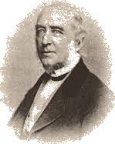






In the 1840s Concord, Mass. (pop. 2K) becomes the center of an Am. lit. renaissance led by Ellery Channing (1780-1842), Amos Bronson Alcott (1799-1888), Ralph Waldo Emerson (1803-82), Nathaniel Hawthorne (1804-64), Sarah Margaret Fuller (1810-50), Henry David Thoreau (1817-62), and Louisa May Alcott (1832-88); in 1840 Sarah Margaret Fuller (1810-50), Ralph Waldo Emerson (1803-82), and George Ripley (1802-80) found the Transcendentalist journal The Dial (ends 1929); meanwhile Louisa (who had a childhood crush on him) carries on with Henry and also with Ralph, while Ralph and Nathaniel have crushes on Margaret, who jilts them both, travels to Italy and falls for a revolutionary nobleman; meanwhile Henry and his brother John fall for Ellen Sewall, who refuses marriages proposals from both - perhaps a wee bit of guilt over what their ancestors did to the aborigines in 1675 would be in order?

In 1855 Huntington, Long Island, N.Y.-born free verse poet ("the Paumanok Poet") ("Founding Father of American Poetry") Walter "Walt" Whitman (1819-92) pub.Leaves of Grass; 12 poems, growing to 32 in the 2nd. 1856 ed. and almost 400 in the 6th and final 1892 ed.; "grass" is slang for works of minor value, and "leaves" is slang for the pages they're printed on; self-pub. after struggling for years of rejection by commercial publishers; he began to get discouraged until he received a note from Ralph Waldo Emerson reading: "Dear sir, I am not blind to the worth of the wonderful gift of Leaves of Grass. I find it the most extraordinary piece of wit and wisdom that America has yet contributed. I greet you at the beginning of a great career"; Emerson suggests that he omit some overtly sexual passages, but he declines; "I was simmering, simmering, simmering; Emerson brought me to a boil".

In 1879 after joining the St. Joseph Gazette in 1875, St. Louis, Mo. born "Children's Poet" Eugene Field Sr. (1850-95) pub. his first poem "Christmas Treasures"; in 1883 after working for the Kansas City Times and Denver Tribune he joins the Chicago Daily News, writing the humor column "Sharps and Flats". He goes on to pub. the poems Little Boy Blue (1888), and Wynken, Blynken, and Nod (original title "Dutch Lullaby") (Mar. 9, 1889); "Wynken, Blynken, and Nod one night/ Sailed off in a wooden shoe - / Sailed on a river of crystal light,/ Into a sea of dew."
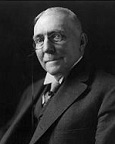
On Nov. 15, 1885 after an endorsement from Henry Wadsworth Longfellow gets him his start with Ind. newspapers, Greenfield, Ind.-born poet James Whitcomb Riley (1849-1916) pub. Little Orphant Annie (original title "The Elf Child") (originally "Little Orphant Allie"), based on real-life orphan Mary Alice "Allie Smith, which inspires the comic strip char. Little Orphan Annie. In 1888 he pub. The Raggedy Man, based on a German immigrant tramp employed by his father; inspires the Raggedy Ann doll. He goes on to become known as "the Hoosier Poet" and "the Children's Poet".

On May 15, 1886 Amherst, Mass.-born poet ("the Nun of Amherst") ("the Belle of Amherst") ("Founding Mother of American Poetry") Emily Elizabeth Dickinson (1830-86) dies in Amherst, Mass (a virgin?) in the same house she lived in all her life, having become a recluse after being jilted by a married minister; last words: "Let us go in, the fog is rising"; she leaves 1,775 poems, of which only seven are pub. during her lifetime, incl. five in the Springfield Republican; she never read Walt Whitman (1819-92), saying that she heard he was "disgusting"?
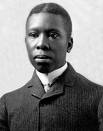
In 1893 Dayton, Ohio-born Paul Laurence Dunbar (1872-1926), who wrote his first poem at age 6 and gave his first recital at age 12 pub. his debut vol. of poetry Oak and Ivy (Lyrics of a Lowly Life), which he self-pub. while working as an elevator boy at the Callahan Bldg. in Dayton, Ohio; Teddy Roosevelt later presents him with a ceremonial sword. In 1898 he pub. his first novel The Uncalled. In 1900 he pub. The Strength of Gideon. In 1902 he pub. The Sport of the Gods. His birthplace Dunbar House at 219 N. Paul Laurence Dunbar St. in Dayton, Ohio becomes a shrine (don't miss the ceremonial sword presented to him by Teddy Roosevelt?).
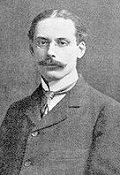
In 1896 after dropping out of Harvard after two years, Head Tide, Lincoln County, Maine-born, Gardiner, Maine-raised self-loathing poet ("America's poet laureate of unhappiness") Edwin Arlington Robinson (1869-1935) (named Edwin after a man from Arlington, Mass. draws it out of a hat at age 6 mo., causing him to hate his name) pub. his debut poetry book The Torrent and the Night Before after paying $100 for 500 copies, which arrive too late to surprise his mother with; he follows with The Children of the Night (1897), which incl. Richard Cory, about a self-loathing rich man, making fans of Pres. Teddy Roosevelt and his son Kermit Roosevelt, causing Teddy to give him a sinecure at the New York Customs Office for $2K/year. In 1910 he pub. The Town Down the River; dedicated to Pres. Theodore Roosevelt; "Said the Watcher by the way/ To the young and the unladen,/ To the boy and to the maiden,/ 'God be with you both to-day'"; it incl. Miniver Cheevy, about a man who thinks he was born too late. In 1919 he pub. The Three Taverns: A Book of Poems. In 1920 he pub. Lancelot. In 1921 he pub. Avon's Harvest, also Collected Poems (1922 Pulitzer Prize in Poetry, the first not paid for by the Poetry Society), which incl. Ben Trovato, Mr. Flood's Party, and Haunted House. In 1923 he pub. Roman Bartholomew. In 1924 he pub. The Man Who Died Twice (Pulitzer Prize). In 1925 he pub. Dionysus in Doubt: A Book of Poems. In 1928 he pub. Tristram (Pulitzer Prize), an Arthurian poem. In 1930 he pub. The Glory of the Nightingales. In 1931 he pub. Matthias at the Door. In 1932 he pub. Nicodemus: A Book of Poems. In 1933 he pub. Talifer. In 1934 he pub. Amaranth, his last attempt to account for the problem of failure? In 1935 he pub. his last poem King Jasper.

In 1898 Garnett, Kan.-born atty.-poet-playwright-writer Edgar Lee Masters (1868-1950) pub. his first vol. of poetry A Book of Verses under the alias Dexter Wallace (mother's maiden name, father's middle name), followed by Songs and Sonnets (1910), and A Spoon River Anthology (1915) (his biggest hit); "Where are Elmer, Herman, Bert, Tom and Charley,/ The weak of will, the strong of arm, the clown, the boozer, the fighter?/ All, all are sleeping on the hill." He follows with Songs and Satires (1916), Fiddler Jones (1916), The Great Valley (1916), Toward the Gulf (1918), Starved Rock (1919), Jack Kelso: A Dramatic Poem (1920), Domesday Book (1920); "Take any life you choose and study it;/ It gladdens, troubles, changes many lives./ The life goes out, how many things result?/ Fate drops a stone, and to the utmost shores/ The circles spread." He follows with The Open Sea (1921), The New Spoon River (1924), Lichee-Nut Poems (Jan.) (Am. Mercury) , Selected Poems (1925), Lee: A Dramatic Poem (1926), Godbey: A Dramatic Poem (1931), a sequel to Jack Kelso (1920), The Serpent in the Wilderness (1933), Richmond: A Dramatic Poem (1934), Invisible Landscapes (1935), Poems of People (1936), The Golden Fleece of California (1936) (poetic narrative). The New World (1937), More People (1939), Illinois Poems (1941), Along the Illinois (1942), and Silence (1946).

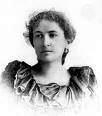
In 1904 Gatesburg, Ill.-born Swedish-Am. poet (school dropout) Carl August Sandburg (1878-1967) pub. his debut poety book In Reckless Ecstasy. In 1912 Poetry: A Magazine of Verse is founded by Harriet Monroe (1860-1936) in Chicago, Ill., going on to pub. Ezra Pound, T.S. Eliot, William Carlos Williams, and Carl Sandburg; Pound goes on to help launch the careers of James Joyce and T.S. Eliot. In 1912 he moves from Milwaukee, Wisc. to Chicago, Ill., hooking up with Monroe. In Mar. 1914 he pub. Chicago in Poetry, the first of nine Chicago Poems; "Hog Butcher for the World,/ Tool Maker, Stacker of Wheat,/ Player with Railroads and the Nation's Freight Handler;/ Stormy, husky, brawling,/ City of the Big Shoulders;" In 1916 he pub. Chicago Poems. In 1918 he pub. Cornhuskers (Pulitzer Prize) (shares it with Margaret Widdemer). In 1920 he pub. Smoke and Steel. In 1922 he pub. Slabs of the Sunburnt West; "I am Chicago, I am a name given out by the breaths of/ working men, laughing men, a child, a belonging." In 1928 he pub. Good Morning, America. In 1936 he pub. The People, Yes. In 1950 he pub. Complete Poems (Pulitzer Prize). In 1963 he pub. his last poetic work Honey and Salt. Sandburg dies on July 22, 1967 in Flat Rock, N.C., after which Pres. LBJ utters the soundbyte: "Carl Sandburg was more than the voice of America, more than the poet of its strength and genius. He was America."



In July 1908 after leaving the U.S. and moving to Venice, Italy in Apr., Hailey, Idaho-born Italophile anti-Semitic #1 modernist poet ("Old Granddad") Ezra Westin Loomis Pound (1885-1972) pub. his first vol. of poetry A Lume Spento (With Tapers Spent), moving to London in Aug. with £3 in his pocket, getting his poetry noticed, with Ford Madox Ford describing him as "approach[ing] with the step of a dancer, making passes with a cane at an imaginary opponent. Pound was a flamboyant dresser at this stage, and had trousers made of green billiard cloth, a pink coat, a blue shirt, a tie hand-painted by a Japanese friend and an immense sombrero. All this was accompanied by a flaming beard cut to a point and a single, large blue earring." In Feb. 1909 he meets English Vorticist artist Dorothy Shakespear (1886-1973), marrying her in Apr. 1914. In Oct. 1912 he pub. Ripostes, helping found Imagism. In 1920 he pub. Hugh Selwyn Mauberly; a "quintesential autobiography" addressing his failure as a poet who attempted to "wring lillies from the acorn"; "For three years, out of key with his time/ He strove to resuscitate the dead art/ Of poetry"; "Beside this thoroughfare/ The sale of half-hose has/ Long since superseded the cultivation/ Of Pierian roses." "There died a myriad/ And of the best, among them,/ For an old bitch gone in the teeth,/ For a botched civilisation"; In 1924 he moves to Italy, openly supporting the Fascists until they lose the war and he is arrested for treason and sent back to the U.S. in Nov. 1945, where he has a breakdown and is committed to a mental hospital before being released in Apr. 1958, returning to Italy for life; his motto: "Make it new" - whadya think I am, a cartoon dog? Meanwhile in 1949 he is awarded the first-ever Bollingen Prize for his "Pisan Cantos", written in military detention in Pisa, Italy before going insane, which he continues to work on until the 1970 pub. of The Cantos, an 800-page unfinished poem he worked on for 50 years, claiming to trace the fall of civilization to the conflict between artistic spirit and materialistic greed, building up his heroes John Adams and Thomas Jefferson, becoming the #1 work of modernist poetry. He dies on Nov. 1, 1972 in Venice, Italy. "A cat that walks by himself, tenaciously unhousebroken and very unsafe for children." (Time mag.) "A plymouth-rock conscience landed on a predilection for the arts" (self-description); "Literature is news that stays news."
In 1910 the Poetry Society of Am. is founded in Manhattan, N.Y. by Witter Bynner et al. as a salon, attracting poets Amy Lowell, Ezra Pound, W.B. Yeats et al. to its meetings, later Robert Frost, Langston Hughes, Edna St. Vincent Millay, Marianne Moore, and Wallace Stevens; in 1917 it becomes instrumental in the establishment of a Pulitzer Prize for poetry; in 1930 it establishes the Frost Medal for lifetime achievement in Am. poetry, with the first award going to Jessie Rittenhouse, and the Shelley Memorial Award for living Am. poets, with the first award going to Conrad Aiken; in 1992 it launches Poetry in Motion in the New York City subway system, expanding to 20+ cities.



In 1911 after leaving New York in Mar. 1908 and arriving in Venice, Italy in Apr., Haley, Idaho-born poet Ezra Weston Loomis Pound (1885-1972) pub. Canzoni, which sets the style for the Imagist Movement in the U.S. and England (founder summer 1912), which uses melodic free verse and haiku and demands precise imagery, attempting to isolate a single image to reveal its essence; members incl. British poet Richard (Edward Godfree) Aldington (1892-1962) and his bi Am. wife (1913-38) Hilda "H.D." Doolittle (1886-1961).
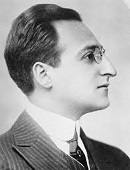

In 1911 New York City-born Jewish poet Louis Untermeyer (1885-1977) pub. his first poetry book First Love: A Lyric Sequence, followed by The Younger Quire (1911), Challenge (1914), These Times (1917), Including Horace (1919), The New Adam (1920), Roast Leviathan (1923), Burnish Bush (1928), Adirondack Cycle (1929), Food and Drink (1932), First Words before Spring (1933), Selected Poems and Parodies (1935), Long Feud: Selected Poems (Apr. 1962), Labyrinth of Love (1965), and A Friend Indeed (June 1968). In Nov. 1916 he co-founds with James Oppenheim, Waldo Frank, and Van Wyck Brooks the poetry mag. The Seven Arts, which introduces many new poets incl. Robert Frost, Amy Lowell, Kahlil Gibran, and D.H. Lawrence before shutting down after its Oct. 1917 issue. In 1950 he becomes a panelist on "What's My Line?", after which his past signing of Communist proclamations causes the Catholic War Veterans et al. to begin calling for Goodson-Todman Productions to fire him, picketing outside the studio until they fold; his last appearance is on on Mar. 11, 1951 questioning guest Celeste Holm, after which he is blacklisted by the TV industry while Bennett Cerf takes his place. In 1961-3 he becomes U.S. poet laureate #14. He goes on to pub. almost 100 books as author or editor.

In 1913 after moving to Beaconsfield, London in 1912, San Francisco, Calif.-born Robert Frost (1874-1963) pub. his first poetry collection A Boy's Will. In 1914 he pub. North of Boston, which makes him famous overnight; incl. Mending Wall ("Something therer is that doesn't love a wall", "Good fences make good neighbors"), After Apple-Picking, The Death of the Hired Man. In 1915 he returns to the U.S., settling on a farm in Franconia, N.H. and teaching English and "the sound of sense" at Amherst College in Mass. (until 1938). In 1916 he pub. Mountain Interval; rev. ed. 1920; incl. The Road Not Taken; "Two roads diverged in the wood, and I--/ I took the one less traveled by,/ And that has made all the difference." In 1921 he begins teaching every summer and fall at the Bread Loaf School of English at Middlebury College in Ripton, Vt. (until 1963). In 1923 he pub. New Hampshire: A Poem With Notes and Grace Notes (Pulitzer Prize); incl. Stopping by Woods on a Snowy Evening; "The woods are lovely, dark and deep./ But I have promises to keep,/ And miles to go before I sleep,/ And miles to go before I sleep." In 1928 he pub. West-Running Brook. In 1930 he pub. Collected Poems (Pulitzer Prize). In 1935 he pub.A Further Range (Pulitzer Prize). In 1940 he buys a 5-acre plot in South Miami, Fla. named Pencil Pines, wintering there for life. In 1958-9 he becomes U.S poet laureate #12. He goes on to receive four Pulitzer Prizes for Poetry, and a Congressional Gold Medal in 1960.
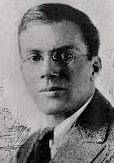
In 1914 after his brain surgeon father goes nuts and murders his wife and himself on Feb. 27, 1901, Savannah, Ga.-born poet-writer Conrad Potter Aiken (1889-1973) (student at Harvard U. of George Santayana and lifelong friend of T.S. Eliot) pub. his first poetry book Earth Triumphant and Other Tales in Verse (debut); incl. "Earth Triumphant"; "The warm sun covers earth again,/ And the ivy leaves flash bright with rain,/ They sparkle on the garden wall,/ Drops, falling, sparkle as they fall;/ And there among the dark leaves clings,/ Scattering rain-drops with his wings,/ A thrush, who having drunk of rain/ Bubbles to sun a mirthful strain." He follows with Turns and Moves and other Tales in Verse (1916), The Jig of Forslin: A Symphony (1916), Nocturne of Remembered Spring: And Other Poems (1917), Charnel Rose (1918), The House of Dust: A Symphony (1920), Punch: The Immortal Liar, Documents in His History (1921), Priapus and the Pool (1922), Selected Poems (Pulitzer Prize), John Deth, A Metaphysical Legacy, and Other Poems (1930), The Coming Forth by Day of Oriris Jones (1931), Preludes for Memnon (1931), Landscape West of Eden (1934), Time in the Rock; Preludes to Definition (1936), And in the Human Heart (1940), Brownstone Ecologues, and Other Poems (1942), The Soldier: A Poem (1944), The Kid (1947), The Divine Pilgrim, 1949, Skylight One: Fifteen Poems (1949), Collected Poems (1953), A Letter from Li Po and Other Poems (1955), Sheepfold Hill: Fifteen Poems (1958), The Morning Song of Lord Zero, Poems Old and New (1963), and Thee: A Poem (1967). In 1950-2 he becomes U.S. poet laureate #9.

In 1914 Indianapolis, Ind.-born Margaret Caroline Anderson (1886-1973) begins pub. The Little Review lit. mag. (until 1929), which goes on to introduce modernists T.S. Eliot and Ezra Pound, and pub. the first 13 chapters of Ulysses by James Joyce in 1918, which gets her convicted in 1921 of obscenity.


On June 20, 1914 Bethlehem, Penn.-born bi Imagist poet-novelist Hilda "H.D." Doolittle (1886-1961), daughter of U. of Penn. astronomy prof. Charles Doolittle, who had a thang for ancient Greek lit. and joined the Imagist poets at the Eiffel Tower Restaurant in Soho, London in summer 1912 pub. the poem Oread under the alias H.E. Imagiste, about a nymph ordering up the sea; "Whirl up, sea --/ Whirl your pointed pines,/ Splash your great pines/ On our rocks,/ Hurl your green over us --/ Cover us with your pools of fir." In 1913 she marries English poet Richard Aldington (until 1938) and has a stillborn daughter, separating in 1917 after he takes a mistress, becoming friends with D.H. Lawrence then moving into a cottage in Cornwall with his friend composer Cecil Gray in Mar. 1918 long enough to become pregnant before he leaves for London and Aldington returns after she has her daughter until the end of WWI. In 1916 she pub. her first poetry book Sea Garden, followed by The God (1917), Hymen (1921), and Heliodora and Other Poems (1927). After WWI she hooks up with wealthy lesbian English novelist-poet (Annie Winifred Ellerman) (1894-1983), and they live together until 1946, while Bryer enters a marriage of convenience in 1921 with wealthy Robert McAlmon, owner of Contact Press, sharing him with her lezzie lover H.D. before divorcing in 1927. In 1932 she pub. the poetry book Red Roses for Bronze. In 1933-4 she undergoes therapy with Sigmund Freud in Vienna while Hitler's troops are threatening it, keeping a journal that she pub. in 1956 under the title Tribute to Freud, which becomes a hit; "My bat-like thought-wings would beat painfully in that sudden searchlight." The Walls Do Not Fall (1944) (#1 in her Trilogy), Tribute to the Angels (1945) (#2 in her Trilogy), Trilogy (1946), The Flowering of the Rod (1946) (#3 in her Trilogy), By Avon River (1949), and Helen in Egypt (1961). In 1972 she posth. pub. Hermetic Definiton. In 1979 she posth. pub. End to Torment: A Memoir of Ezra Pound. In 1981 her novel HERmione is posth. pub., part of her Madrigcal Cycle incl. "Bid Me to Live" (1960), "Paint It Today" (1921; pub. 1992), and "Asphodel" (1922; pub. 1992), detailing her inner conflict between her straight and gay sides, making her an LGBT star. In 1982 her essay Notes on Thought and Vision (written in 1919) is posth. pub., describing poets as an elite group of visionaries with the power to "turn the whole tide of human thought", incl. "The Wise Sappho" about her greatest imaginary friend. In 2013 her poetry book Vale Ave (written 1957-8) is posth. pub.

In 1917 after a "Gypsy childhood on the coast of Maine", then in 1912 entering the poem Renascence in The Lyric Year, seeing it come in 4th even though everybody thought it should have won, leading to wealthy arts patron Caroline B. Dow paying for her education at Vassar College, Rockland, Maine-born redheaded feminist activist lyrical poet-playwright Edna St. Vincent Millay (1892-1950) (AKA Nancy Boyd) pub. her first vol. of poetry Renascence: And Other Poems, which incl. "Interim" ("The Room is full of you!"). In 1920 she pub. A Few Figs from Thistles: Poems and Sonnets, which becomes controversial for its exploration of feminism and female sexuality; "And if I love you Wednesday,/ Well, what is that to you?/ I do not love you Thursday -/ So much is true./ And why you come complaining/ Is more than I can see./ I loved you Wednesday, - yes - but what/ Is that to me?"; "Cut if you will, with Sleep's dull knife,/ Each day to half its length, my friend, - / The years that Time takes off my life,/ He'll take off from the other end!"; "She wrote the best sonnets of the century." (Richard Wilbur) In 1921 she pub. Second April (sonnets), which incl. "Spring", "Ode to Silence", "The Beanstalk"; also The Lamp and the Bell (sonnets), composed for a Vassar College commencement. In 1922 she pub. A Few Figs from Thistles, which incl. First Fig; "My candle burns at both ends;/ It will not last the night;/ But ah, my foes, and oh, my friends - / It gives a lovely light!" In 1922 she pub. The Harp-Weaver and Other Poems, which beats out T.S. Eliot's "The Waste Land" for the 1923 Pulitzer Prize for Poetry, after which she goes silly? In 1928 she pub. The Buck in the Snow, which incl. The Buck in the Snow; goes through 6 eds. in one year. In 1931 she pub. Fatal Interview: Sonnets. In 1934 she pub. Wine from These Grapes; incl. Wine From These Grapes (Wine from these grapes I shall be treading surely/ Morning and noon and night until I die./ Stained with these grapes I shall lie down to die"), Epitaph for the Race of Man; "O Earth, unhappy planet born to die,/ Might I your scribe and your confessor be,/ What wonders must you not relate to me/ Of man, who when his destiny was high/ Strode like the sun into the middle sky/ And shone an hour, and who so bright as he,/ And like the sun went down into the sea,/ Leaving no spark to be remembered by." In 1942 she pub. The Murder of Lidice; the Nazi destruction of a Czech. town.
In 1918 the first Pulitzer Prize for Poetry is awarded to Sara Teasdale, followed by Carl Sandburg in 1919, and Margaret Widderner in 1919; Robert Frost wins it 4x.
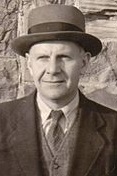
In 1919 Pulaski, Tenn.-born John Crowe Ransom (1888-1974) pub. his first poetry book Poems about God, followed by Chills and Fever (1924), Grace after Meat (1924), Two Gentlemen in Bonds (1927), and Selected Poems (1945); 2nd ed. in 1963, 3rd ed. in 1969. In 1939 he founds The Kenyon Review at Kenyon College in Gambier, Ohio, acting as ed. until 1959. In 1941 he pub. The New Criticism, founding a new school that dominates Am. lit. criticism for decades. He goes on to become the #1 Southern Am. poet of the 20th cent.

In 1920 Rutherford, N.J.-born William Carlos Williams (1883-1963), a physician at Passaic Gen. Hospital who writes poetry at night pub. Kora in Hell, Improvisations, which his friend Ezra Pound calls "incoherent". In fall 1923 he pub. Spring and All in Paris; too bad, T.S. Eliot's "The Waste Land" kills his sales; incl. Spring and All; "By the road to the contagious hospital"; To Elsie; The Red Wheelbarrow; "So much depends upon a red wheel barrow glazed with rain water beside the white chickens". In 1962 he pub. Pictures from Brueghel and Other Poems, which is awarded a posth. Pulitzer Prize. Williams "saw his poetic task was to affirm the self-reliant, sympathetic consciousness of Whitman in a broken industrialized world." (James E. Breslin)

In 1921 well-traveled Kikwood, Mo.-born Modernist poet Marianne Craig Moore (1887-1972) ("a hysterical virgin" - Hart Crane) (known for the soundbyte that new poets should depict "imaginary gardens with real toads in them") pub. her first poetry book Poems, pub. in London by former Bryn Mawr classmate H.D. and Bryher without her consent, pissing her off; she follows with Observations (1924), Selected Poems (1935) (intro. by T.S. Elot), The Pangolin and Other Verse (1936), What Are Years (1941), Nevertheless (1944), A Face, and Collected Poems (1951). In 1925 she becomes ed. of The Dial (until 1929), after which she goes on to promote new poets incl. Irwin Allen Ginsberg (1926-97), John Lawrence Ashbery (1927-2017), Elizabeth Bishop (1911-79), Ouija Board poet James Merrill (1926-95), and Harold Hart Crane (1899-1932), notoriously butchering his poem The Wine Menagerie before pub. it under the title "Again"; "Invariably when wine redeems the sight,/ Narrowing the mustard scansions of the eyes,/ A leopard ranging always in the brow/ Assets a vision in the slumbering gaze./ Then glozening decanters that reflect the street/ Wear me in crescents on their bellies. Slow/ Applause flows into liquid synosures:/ -- I am conscripted to the shadows' glow."

In 1922 New York City-born Jewish novelist-poet Robert Gruntal Nathan (1894-1985) pub. his debut poetry book Youth Grows Old. In 1929 he pub. A Cedar Box; "I go forward to queen’s three,/ And in to break the bishop’s might;/ The master plays it skillfully./ The game is over, then?/ Not quite. The adversary moves, and I Avoid .../ I hope the master knows/ How near he came to losing me./ Once more against the wooden foes In angles and in oblique ways -/ Though I grow weary of the blows Of pawns, and disappointing shocks./ And wonder sometimes what the game/ Is for, and who it is that plays/ So grimly, since the end’s the same -/ A closed and quiet cedar box." In 1935 he pub. Selected Poems. In 1940 he pub. A Winter Tide: Sonnets and Poems. In 1942 he pub. Dunkirk: A Ballad. In 1944 he pub. Morning in Iowa. In 1945 he pub. The Darkening Meadows. In 1950 he pub. The Green Leaf: The Collected Poems of Robert Nathan. In 1962 he pub. The Married Man. In 1973 he pub. his last poetry book Evening Song: Selected Poems 1950-1973.

In 1923 Livermore Falls, Maine-born lyric poet Louise Bogan (1897-1970) pub. her first poetry book Body of This Death: Poems, which incl. Medusa, followed by Dark Summer: Poems (1929). In 1929 she becomes poetry ed. for The New Yorker (until 1949). She follows with The Sleeping Fury (1937). In 1945-6 she becomes U.S. poet laureate #4. "I cannot believe that the inscrutable universe turns on an axis of suffering; surely the strange beauty of the world must somewhere rest on pure joy!" – Louise Bogan

In 1923 Cambridge, Mass.-born majuscule-challenged poet-playwright-writer-painter Edward Estlin Cummings (e e cummings) (1894-1962) (likes hyphens and parentheses, and detests commas, periods, and capital letters) pub. his first vol. of poetry Tulips and Chimneys; Thomas Seltzer changes "&" to "and" in the title; incl. "All in green went my love riding", "Thy fingers make early flowers of", "Buffalo Bill's", and "Puella Mea".

In 1923 Reading, Penn.-born poet Wallace Stevens (1879-1955), and insurance exec with Hartford Accident and Indemnity Co. who writes poetry in his spare time, doesn't travel in lit. circles, and in 1936 gets in a fistfight with Ernest Hemingway in Key West pub. his debut collection Harmonium, which incl. Anecdote of the Jar, Disillusionment of Ten O'Clock, The Emperor of Ice-Cream, Sunday Morning, The Snow Man, and Thirteen Ways of Looking at a Blackbird. He follows with Ideas of Order (1936), which incl. The Idea of Order at Key West, and Sad Strains of a Gay Waltz. He follows with Owl's Clover (1936), The Man with the Blue Guitar (1937), Parts of a World (1942), Transport to Summer (1947), which incl. Notes Toward A Supreme Fiction ("And for what, except for you, do I feel love?"). He follows with The Auroras of Autumn (Sept. 1950), and The Collected Poems of Wallace Stevens (1954), which wins a Pulitzer Prize.
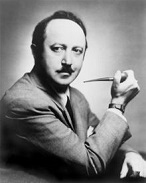
In 1924 Philadelphia, Penn.-born poet-novelist Joseph Auslander (1897-1965), husband of poet Audrey Wurdemann pub. his first poetry book Sunrise Trumpets, followed by Cyclop's Eye (1926), Historia amoris mea (1927), Letters to Women (1929) (illustrations by Clare Leighton), Hell in Harness (1929) (illustrations by Ervine Metzel), No Traveller Returns: A Book of Poems (1935), More Than Bread: A Book of Poems (1936), Riders at the Gate a Vol of Verse (1938), The Unconquerables: Salutes to the Undying Spirit of the Nazi-Occupied Countries (Saturday Evening Post, 1941), Four Sonnets on the Eve of the Invasion (Life mag., May 22, 1940), and The Islanders (1951). In 1937-41 he becomes U.S. poet laureate #1.
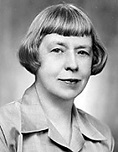
In 1925 Brooklyn, N.Y.-born lyric poet Leonie (Léonie) Fuller Adams (1899-1988) pub. her first poetry book Those Not Elect, followed by High Falcon and Other Poems (Dec. 1, 1929), Midsummer, This Measure (1933), and Poems: A Selection (1954). In 1948-9 she becomes U.S. poet laureate #7.

In 1925 Joplin, Mo.-born gay black poet-novelist-playwright James Mercer Langston Hughes (1902-67), a leader of the Harlem Renaissance and pioneer of jazz poetry pub. I, Too, Am America, which contains the soundbyte: "I am the darker brother, but I too am American". In 1926 he pub. his first poetry book The Weary Blues, which incl. The Negro Speaks of Rivers; "My soul has grown deep like the rivers". In 1926 he pub. The Negro Artist and the Racial Mountain in "The Nation"; "The younger Negro artists who create now intend to express our individual dark-skinned selves without fear or shame. If white people are pleased we are glad. If they are not, it doesn't matter. We know we are beautiful." In 1927 he pub. Fine Clothes to the Jew. In 1931 he pub. Langston Hughes (1902-67), The Negro Mother, and Other Dramatic Recitations; incl. The Negro Mother; also Dear Lovely Death; "Dear lovely Death,/ Change is thy other name." In 1932 he pub. The Dream Keeper and Other Poems; also Scottsboro Limited: Four Poems and a Play in Verse; illustrations by Prentiss Taylor; incl. Scottsboro; "8 BLACK BOYS IN A Southern Jail./ WORLD, TURN PALE!" In 1935 he pub. Let America Be America Again; "O, yes,/ I say it plain/ America never was America to me,/ And yet I swear this oath - / America will be!" In 1940 he pub. The Big Sea: An Autobiography, which contains the famous soundbyte about the 1920s Harlem Renaissance: "White people began to come to Harlem in droves... It was the period when the Negro was in vogue." In 1942 he pub. Shakespeare in Harlem. In 1943 he pub. Freedom's Plow; "When a man starts out with nothing,/ When a man starts out with his hands/ Empty, but clean,/ When a man starts to build a world,/ He starts first with himself/ And the faith that is in his heart -/ The strength there,/ The will there to build." In 1961 he pub. Ask Your Momma: 12 Moods for Jazz; inspired by the white youth riot at the 1960 Newport Jazz Festival; his masterpiece? On May 22, 1967 he dies in New York City. In 1967 he posth. pub. The Panther and the Lash: Poems of Our Times, which incl. Words on Fire.

In 1926 Garrettsville, Ohio-born gay Modernist poet Harold Hart Crane (1899-1932) pub. his first poetry book White Buildings, which incl. Voyages, a cycle of six poems about his love affair with Danish merchant mariner Emil Opffer, making him an instant star. In 1930 he pub. his only long poem The Bridge, based on time spent living near the Brooklyn Bridge; his masterpiece?; his attempt to best his hero T.S. Eliot's "The Waste Land". On Apr. 27, 1932 after being beaten for making homosexual advances on a male sailor, he jumps overboard from a steamship in the Gulf of Mexico, after which his poem The Broken Tower is pub., about his first hetero love affair with Peggy Cowley, estranged wife of Malcolm Cowley.

In 1926 after co-founding the Algonquin Round Table (The Vicious Circle) in 1919, Long Branch, N.J.-born Jewish Communist alcoholic Dorothy "Dot" "Dottie" Parker (nee Rothschild) (1893-1967) pub. her first poetry book Enough Rope, which sells 47K copies, establishing her rep; it incl. News Item ("Men seldom make passes/ At girls who wear glasses"). In 1928 she pub. Sunset Gun; "They sicken of the calm who know the storm"; "And if my heart be scarred and burned,/ The safer, I, for all I learned"; "One more drink and I'd have been under the host"; "Accursed from their birth they be/ Who seek to find monogamy,/ Pursuing it from bed to bed - / I think they would be better dead." In 1931 she pub. Death and Taxes.

In 1927 Terra Haute, Ind.-born atty. Max Ehrmann (1872-1945) pub. his one-hit wonder poem Desiderata (Lat. "desired things"); "Go placidly amid the noise and the haste, and/ remember what peace there may be in silence. As/ far as possible, without surrender, be on good terms with all persons"; "You are a child of the universe,/ no less than the trees and the stars;/ you have a right to be here./ And whether or not it is clear to you, no doubt the universe is unfolding as it should"; "With all its sham, drudgery, and broken dreams,/ it is still a beautiful world. Be cheerful. Strive to be happy"; in 1959 Rev. Frederick Kates of St. Paul's Church in Baltimore, Md. claims that it dates back to 1692, but it later is found that he only meant the church; when Adlai Stevenson dies in 1965, a copy is found near his bed, causing it to finally become famous, after which Leonard Nimoy recites it under the title "Spock Thoughts" in his 1968 album "Two Sides of Leonard Nimoy".

In 1928 Bethlehem, Penn.-born poet-novelist Stephen Vincent Benet (Benét) (1898-1943), brother of poet William Rose Benet (1886-1950) pub. John Brown's Body (Pulitzer Prize), a book-length narrative poem about the U.S. Civil War. In 1931 he pub. Ballads and Poems, 1915-1930, which incl. American Names; "Bury my heart at Wounded Knee". In 1934 he pub. James Shore's Daughter. In 1936 he pub. Burning City: New Poems, which incl. Litany for Dictatorships; "For all those beaten, for the broken heads,/ The fosterless, the simple, the oppressed,/ The ghosts in the burning city of our time."

In 1928 Jamaican-born poet Claude McKay (1889-1948) pub. Home to Harlem, which becomes a bestseller. In 1930 he pub. Banjo. In 1932 he pub. Gingertown (short stories). In 1933 he pub. Banana Bottom.

In 1928 Winchester, Ky.-born John Orley Allen Tate (1899-1979) pub. his first poetry book Mr. Pope and Other Poems, which incl. Ode to the Confederate Dead; his masterpiece?; inspires Robert Lowell's 1964 poem "For the Union Dead". He goes on to become the U.S. poet laureate in 1943-4.
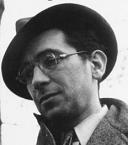
In 1929 Oak Park, Ill.-born novelist-poet ("chief poet of the American Depression" - Macha Rosenthal) Kenneth Flexner Fearing (1902-61) pub. his first poetry book Angel Arms. In 1938 he pub. Dead Reckoning: A Book of Poetry. In 1943 he pub. Afternoon of a Pawnbroker and Other Poems. In 1948 he pub. Stranger at Coney Island. On July 15, 1994 he posth. pub. Complete Poems, which incl. Dirge (193?); "Wham, Mr. Roosevelt; pow, Sears Roebuck; awk, big dipper; bop, summer rain;/ Bong, Mr., bong, Mr., bong, Mr., bong."


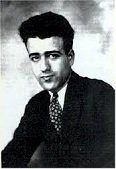
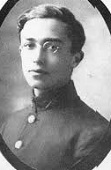

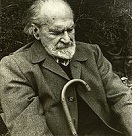

In the 1930s the Objectivism Movement in Poetry, coined in the Feb. 1931 issue of Poetry mag. by Harriet Monroe (who hated it) for leader Louis Zukofsky (1904-78) is founded by 2nd-gen. Am. Modernists poets incl. George Oppen (1908-84), Carl Rakosi (1903-2004) (last surviving member), Charles Reznikoff (1894-1976), William Carlos Williams (1883-1963), along with British poet Basil Cheesman Bunting (1900-85), later Lorine Faith Niedecker (1903-79), continuing the tradition of Ezra Pound's Imagism, treating a poem as an object, and emphasizing the poet's ability to look clearly at the world with sincerity and intelligence, concentrating on everyday vocabulary; they go on to influence later generations of Modernists incl. the Beat poets and Black Mountain poets, who revive their popularity in the 1960s; "Among the heaps of brick and plaster lies/ a girder, still itself among the rubbish" (Reznikoff); "The fingers of your thoughts are molding your face ceaselessly." (Reznikoff) On Jan. 31, 1979 Zukofsky posth pub. "A"; "The most hemetic poem in the language, which they will still be elucidating in the 22nd century." (Hugh Kenner)

In 1930 York, England-born gay Modernist poet Wystan Hugh "W.H. Auden (1907-73) pub. his first poetry book Poems (2nd ed. 1933), which makes his rep as the enfant terrible of English poetry, and is reprinted in the U.S. in 1934 with the extra poems The Orators: An English Study and the 1-act verse play The Dance of Death, which features Karl Marx appearing on stage and uttering the soundyte: "The instruments of production have been too much for him." In 1947 after moving to the U.S. in 1939 and becoming a U.S. citizen in 1946, he pub. the long poem The Age of Anxiety: A Baroque Ecologue, which wins the 1948 Pulitzer Prize. "The greatest mind of the twentieth century." (Joseph Brodsky)

In 1930 Austin, Minn.-born poet Richard Eberhart (1904-2005) pub. his first poetry book A Bravery of Earth, followed by Reading the Spirit (1936), Song and Idea (1940), War and the Poet: An Anthology of Poetry Expressing Man's Attitudes to War from Ancient Times to the Present 1800 B.C. - 1945 A.D. (1945), Poems: New and Selected (1944), Burr Oaks (1947), Brotherhood of Men (1949), Undercliff: Poems 1946-1953 (1954), which incl. "Fragment of New York, 1929", Great Praises (1957). Collected Poems, 1930-1960 (1960), Collected Verse Plays (1962), The Quarry: New Poems (Dec. 31, 1964), Selected Poems, 1930-1965 (June 1965) (Pulitzer Prize), Thirty-One Sonnets (1967), Shifts of Being (1968), Collected Poems, 1930-1976, including 43 new poems (1976) (Nat. Book Award), The Long Reach: New & Uncollected Works 1948-1984 (Feb. 1, 1984), Maine Poems (Nov. 10, 1988), and New and Selected Poems 1930-1990 (1990). He becomes U.S. poet laureate #13 in 1959-61.

In 1930 Worcester, Mass.-born Jewish poet Stanley Kunitz (1905-2006) pub. his first poetry book Intellectual Things, followed by Passport to the War (1944), Selected Poems, 1928-1958 (1958) (Pulitzer Prize), The Testing Tree (1971) ("In a murderous time/ the heart breaks and breaks/ and lives by breaking./ It is necessary to go/ through dark and deeper dark and not to turn"), The Poems of Stanley Kunitz (1928-1978) (1978), Next-to-Last Things: New Poems and Essays (1985), Passing Through: The Later Poems, New and Selected (1995) (Nat. Book Award), The Collected Poems of Stanley Kunitz (2000), and The Wild Braid: A Poet Reflects on a Century in the Garden (2005). He becomes U.S. poet laureate #23 in 1974-6 and #50 in 2000-1.
In 1934 the Academy of Am. Poets is founded in N.Y. state, going on to pub. American Poets mag., and found the Web site Poets.org, establishing the James Laughlin Award (for 2nd pub. books) (1954), Copernicus Award (1974-7), Edgar Allan Poe Award (1974-7), Leonore Marshall Poetry Prize (1975), Walt Whitman Award (1975), Harold Morton Landon Translation Award (1976), Peter I.B Lavan Younger Poets Award (1983-94), Wallace Stevens Award (1984), Raiziss/de Palchi Translation Award (1995), Aliki Perroti and Seth Frank Most Promising Young Poet Award (2013), and Ambroggio Prize (2017).
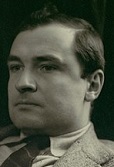
In 1935 Springfield, Ill.-born Robert Stuart Fitzgerald (1910-85) pub. his first poetry book Poems, followed by A Wreath for the Sea (1943), In the Rose of Time: Poems 1939-1956 (1956), and Spring Shade: Poems 1931-1970 (1971). He becomes U.S. poet laureate #29 in 1984-5.

In 1935 Baltimore, Md.-born Jewish poet Karl Jay Shapiro (1913-2000) pub. his first poetry book Poems, followed by The Place of Love (1943), V-Letter and Other Poems (1944) (written in 1942-3 while serving in New Guinea) (Pulitzer Prize), Essay on Rime, Trial of a Poet (1947), Poems of a Jew (1950), Poems 1940-1953 (1953), The Bourgeois Poet (1964), Selected Poems (1968), White Haired Lover (1968), Adult Bookstore (1976), Collected Poems, 1940-1978 (1978), New and Selected Poems, 1940-1987 (1988), The Old Horsefly (1993), The Wild Card: Selected Poems, Early and Late (1998), Selected Poems (2003), and Coda: Last Poems (2008). In 1946-7 he becomes U.S. poet laureate #5. "Karl Shapiro's poems are fresh and young and rash and live; their hard clear outlines, their flat bold colors create a world like that of a knowing and skillful neoprimitive painting, without any of the confusion or profundity of atmosphere, of aerial perspective, but with notable visual and satiric force. The poet early perfected a style, derived from Auden but decidedly individual, which he has not developed in later life but has temporarily replaced with the clear Rilke-like rhetoric of his Adam and Eve poems, the frankly Whitmanesque convolutions of his latest work. His best poems - poems like 'The Leg', 'Waitress', 'Scyros', 'Going to School', 'Cadillac' - have a real precision, a memorable exactness of realization, yet they plainly come out of life's raw hubbub, out of the disgraceful foundations, the exciting and disgraceful surfaces of existence." (Randall Jarrell)

In 1936 Guthrie, Ky.-born poet-novelist Robert Penn Warren (1905-89) pub. his first poetry book Thirty-Six Poems, followed by Eleven Poems on the Same Theme (1942), Selected Poems 1923-1943 (1944), Brother to Dragons: A Tale in Verse and Voices (1953, 1979), Promises: Poems 1954-1956 (1957) (Pulitzer Prize), You, Emperors, and Others: Poems 1957-1960 (1960), Selected Poems: New and Old 1923-1966 (1966), Incarnations: Poems 1966-1968 (1968), Audubon: A Vision (1969), Or Else - Poem/Poems, 1968-1974 (1974), which incl. "Homage to Theodore Dreiser", "Flaubert in Egypt", Selected Poems 1923-1976 (1977), Now and Then: Poems 1976-1978 (1978) (Pulitzer Prize), Being Here: Poetry 1977-1980 (1980), Rumor Verified: Poems, 1979-1980 (Aug. 12, 1981), and New and Selected Poems 1923-1985 (1985).
In 1937 Joseph Auslander becomes the first U.S. Poet Laureate (Poet Laureate Consultant in Poetry to the Library of Congress) (until 1941), followed by Allen Tate (1943-4), Robert Penn Warren (1944-5), Louise Bogan (1945-6), Karl Shapiro (1946-7), and Robert Lowell (1947-8).


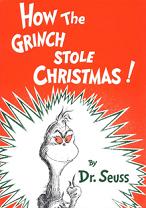
In 1937 Springfield, Mass.-born writer-poet-cartoonist Theodor "Ted" Seuss ("Dr. Seuss") Geisel (1904-91) (AKA Theophrastus Seuss, Theo LeSieg, Rosetta Stone) (raised near Mulberry St. and educated at Dartmouth College, and Lincoln College, Oxford U.) pub. his first children's novel And to Think That I Saw It on Mulberry Street, which was rejected by 23 publishers before an old college friend from Vanguard Press was bumped into on Madison Ave. in New York City? He follows with The 500 Hats of Bartholomew Cubbins (1938) (Vanguard Press), written in prose; King Derwin of Didd passes you know who, who removes his hat only to see another more beautiful one appear; his 500th hat finally stays off; followed by sequel "Bartholomew and the Oobleck" (1949). In 1939 he pub. The Seven Lady Godivas: The True Facts Concerning History's Barest Family (Random House), about the seven Godiva sisters, who never wear clothing ("they were simply themselves and chose not to disguise it"), and after their father Lord Godiva is flung from his horse and killed on the way to the 1066 Battle of Hastings, they promise never to marry the seven brothers named Peeping, instead going on quests for "horse truths", each learning a moral; a flop. He follows with The King's Stilts (1939) (Random House), about King Bertram of Binn, who rules a kingdom surrounded by water guarded by a ring of dike trees which are attacked by flocks of nizzards, causing him to recruit a legion of Patrol Cats to keep the nizzards at bay until his evil minister Lord Droon gets his page boy Eric to hide his red stilts, making him grow depressed, causing the Patrol Cats to neglect their duties until Eric returns them; "When the king worked, he really worked. And when he played, he really played." In 1940 he pub. Horton Hatches the Egg (Random House); Horton the Elephant agrees to sit on a bird's egg while its irresponsible mother Mayzie takes off for Palm Beach; it turns out to be an elephant-bird, and takes months to hatch; "I meant what I said, and I said what I meant.../ An elephant's faithful - one hundred per cent!" In 1955 Rudolf Franz Flesch (1911-86) pub. Why Johnny Can't Read: And What You Can Do About It, which advocates dumping the "see-say" (whole language) (brute force memorization) method of teaching reading for good ole phonics; too bad, the educational community ignores him; this book and a 1954 Time mag. article by John Hersey inspire Dr. Seuss to write "The Cat in the Hat" (1957). On Mar. 12, 1957 Dr. Seuss pub. The Cat in the Hat (Random House); 1,626 words long; uses only 236 different words (word with most syllables = "another"); written in anapestic (..-) tetrameter; latch-key kids Sally and her older brother (the narrator) are visited by the tall anthropomorphic Cat in the Hat (who wears a red bow tie and red-white striped tower hat), Thing One and Thing Two, who wreck the house until the mother is about to arrive, when the Cat produces a cleaning machine and cleans up and disappears before she walks in; meanwhile the fish's objections are ignored. On Nov. 24, 1957 he pub. How the Grinch Stole Christmas! (Random House); the solitary Grinch, with a heart "two sizes too small" who lives on snowy Mount Crumpit with his dog Max steals all the Christmas presents and decorations from Whoville, and is about to dump them in then abyss when he hears them singing, causing his heart to grow three sizes larger and return them, receiving the honor of carving the Roast Beast; "Maybe Christmas, he thought, means a little bit more"; filmed in 2000 starring Jim Carrey. He follows with The Cat in the Hat Comes Back (1958) (Random House); the Cat in the Hat returns, bringing Little Cat A nested inside his hat, which doffs its hat to reveal Little Cat B, which does ditto to reveal Little Cat C, etc., down to Little Cat Z, and together they work to get rid of a pink ring that started in the bathtub and spread to a dress, a well, some shoes, and out onto the snow. He follows with Yertle the Turtle and Other Stories (1958) (Random House); King Yertle commands his turtles to stack themselves to make a throne so he can see farther; girl-birds Gertrude McFuzz and Lolla-Lee-Lou; a rabbit and a bear argue who is the "best of the beasts". On Aug. 12, 1960 he pub. Green Eggs and Ham (Random House), becoming the #4 bestselling English-language children's book of all time; uses only 50 different words; banned in China in 1965-91; "I do not like green eggs and ham. I do not like them, Sam-I-Am"; "I do so like green eggs and ham. Thank you. Thank you, Sam-I-Am."
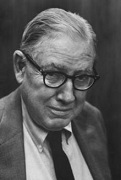
In 1938 Rye, N.Y.-born humorous poet Frederic Ogden Nash (1902-71), great-grandson of Am. Rev. Gen. Francis Nash, namesake of Nashville, Tenn. pub. his first poetry book I'm a Stranger Here Myself, followed by The Face is Familiar: The Selected Verse of Ogden Nash (1941).
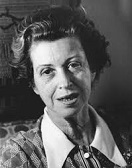
In 1940 after getting he first poem pub. in St. Nicholas Magazine at age 11, Coburg, Ont., Canada-born Am. poet-critic and short story writer Josephine Winder Jacobsen (nee Boylan) (1908-2003) pub. her first poetry book Let Each Man Remember, followed by For the Unlost (1946), The Human Climate: New Poems (1953), and The Animal Inside (1966), going on to do her best work in her 70s-80s ("post-cocious" - Stanley Kunitz), starting with The Shade Seller: New and Selected Poems (Jan. 1, 1974), followed by The Sisters: New and Selected Poems (Apr. 1, 1980), which incl. "The Edge", The Chinese Insomniacs: New Poems (Oct. 1, 1981), Distances (1992), In the Crevice of Time: New and Collected Poems (1995), and Contents of a Minute: Poems (posth.) (Apr. 1, 2008). She becomes U.S. poet laureate #21 in 1971-3. "[Josephine Jacobsen's poetry] rejoices in words for their own sake, not for the sake of the objects or ideas to which they refer. Words themselves become metaphors for the the inexplicable tangle of body and spirit... Through words we are identified. They allow us to recognize and name the human experience." (Julie Miller) "Poetry is like walking along a little, tiny, narrow ridge up on a precipice. You never know the next step, whether there's going to be a plunge. I think poetry is dangerous. There's nothing mild and predictable about poetry."

In 1940 South Bend, Ind.-born Kenneth Charles Marion Rexroth (1905-82) pub. his first poetry book In What Hour, followed by The Phoenix and the Tortoise (1944), about love as a sacramental act that connects the lovers with a transcendent universal awareness; "The process as I see it goes something like this: from abandon to erotic mysticism, from erotic mysticism to the ethical mysticism of sacramental marriage, thence to the realization of the ethical mysticism of universal responsibility." He follows with The Art of Worldly Wisdom (1949), and The Signature of All Things (1949). On Apr. 15, 1949 the listener-supported FM station KPFA (94.1) is founded in Berkeley, Calif. by Lewis Hill (1919-57), who organizes gatherings of San Fran artists and writers in Rexroth's apt. In 1951 he pub. Beyond the Mountains: Four Plays (1951), followed by The Dragon and the Unicorn (1952), Thou Shalt Not Kill: A Memorial for Dylan Thomas (1955), In Defense of the Earth (1956), Natural Numbers: New and Selected Poems (1963), and Collected Shorter Poems (1968). In 1968-73 Rexroth becomes a lecturer at UCSB, becoming infamous for witty remarks on the trends of anti-intellectualism and laziness on campus. He follows with With Eye and Ear (1970), Sky, Sea, Birds, Trees, Earth, House, Beasts, Flowers (1971), New Poems (1974), The Silver Swan (1976), On Flower Wreath Hill (1976), The Morning Star (1979), Saucy Limericks & Christmas Cheer (1980), and Between Two Wars: Selected Poems Written Before World War II (1982). He goes on to posth. pub. Selected Poems (1984), Flower Wreath Hill: Later Poems (1991), Sacramental Acts: The Love Poems (1997), Complete Poems (2003), and In the Sierra: Mountain Writings (2012).

In 1942 McAlester, Okla.-born Confessional poet John Allyn McAlpin Berryman (nee John Allyn Smith Jr.) (1914-72) pub. his debut poetry book Poems, followed by The Dispossessed (1948), which is dissed by Randall Jarrell as too much like W.B. Yeats, causing him to reply "I didn't want to be like Yeats; I wanted to be Yeats." In 1945 he pub. Homage to Mistress Bradstreet, with illustrations by Ben Shan, becoming his first hit. In 1964 he pub. 77 Dream Songs (Pulitzer Prize), 18-line poems about middle-aged Henry; he follows with His Toy, His Dream, His Rest (1968), more about Henry, which together become known as The Dream Songs (1969), the complete set of 385 on Henry.
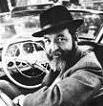
In 1942 Nashville, Tenn.-born Randall Jarrell (1914-65) pub. his first poetry book Blood for a Stranger, followed by Little Friend, Little Friend (1945), Losses (1948), The Seven League Crutches (1951), Poetry and the Age (1953), Pictures from an Institution: A Comedy (1954), Selected Poems (1955), The Woman at the Washington Zoo: Poems and Translations (1960), Selected Poems (1964), The Bat-Poet (illustrations by Maurice Sendak) (1964), The Gingerbread Rabbit (illustrations by Garth Williams) (1965), The Lost World (1965), >The Animal Family (illustrationis by Maurice Sendak) (1965), and The Complete Poems (1969). In 1956-8 he becomes U.S. poet laureate #11. Too bad, on Oct. 14, 1965 he is killed by an automobile on U.S. Highway 15-501 near Chapel Hill, N.C. in a suspected suicide, after which on Feb. 28, 1966 a memorial service is held in his honor at Yale U., attended by poets John Berryman, Richard Lowell, Stanley Kunitz, Robert Lowell, and Robert Penn Warren, with Lowell uttering the soundbyte that Jarrell was "the most heartbreaking poet of our time..." and had written "the best poetry in English about the Second World War".

In 1944 Boston, Mass.-born poet (pacifist) (alcoholic) (manic-depressive) Robert Traill Spence Lowell IV (1917-77), son of Charlotte Winslow (descendant of William Samuel Johnson), Jonathan Edwards, Anne Hutchinson et al., one of the New England Lowells, incl. James Russell Lowell (1819-91) and Amy Lowell (1874-1925) pub. his first poetry book Land of Unlikeness. In 1944-5 he becomes U.S. poet laureate #3. In 1946 he follows with Lord Weary's Castle, incl. The Quaker Graveyard in Nantucket, dedicated to his cousin "Warren Winslow, Dead at Sea", which wins the Pulitzer Prize; "The bones cry for the blood of the white whale,/ the fat flukes arch and whack about its ears,/ the death-lance churns into the sanctuary, tears/ the gun-blue swingle, heaving like a flail,/ and hacks the coiling life out: it works and drags/ and rips the sperm-whale's midriff into rags,/ gobbets of blubber spill to wind and weather." He goes on to be influenced by Allen Tate and the New Critics and become the #1 U.S. poet from the mid-1940s to the mid-1960s; converting from Episcopalianism to Roman Catholicism before becoming mentally ill and chucking it. In 1964 he pub. For the Union Dead; incl. For the Union Dead (a reply to Allen Tate's 1928 "Ode to the Confederate Dead"), Beyond the Alps. In 1973 he pub. his last poem The Dolphin (Pulitzer Prize), about his wife (1972-7) Lady Caroline Blackwood (1931-96) and their son, he being manic-depressive and she being alcoholic; "My Dolphin, you only guide me by surprise,/ a captive of Racine, the man of craft,/ drawn through his maze of iron composition/ by the incomparable wandering voice of Phedre."

In 1946 Worcester, Mass.-born lesbian poet Elizabeth Bishop (1911-79) pub. her first poetry book North & South, which incl. "The Man-Moth", "The Fish", followed by Poems: North & South - A Cold Spring (Pulitzer Prize) (1955), Questions of Travel (1965), which incl. "Arrival at Santos", "Manuelzinho", "The Riverman", "In the Village", "First Death in Nova Scotia", The Complete Poems (1969) (Nat. Book Award), Geography III (1977), which incl. "In the Waiting Room", "One Art", and The Complete Poems 1972-1979 (1983) (posth.). In 1949-50 she becomes U.S. poet laureate #8.

In 1946 Ilford, Essex, England-born Priscilla Denise Levertov (1923-1997) pub. her first poetry book The Double Image, followed by 23 more, incl. The Jacob's Ladder (1961), O Taste and See: New Poems (1964), The Sorrow Dance (1967), which incl. the anti-war poem Life at War, Life At War (1968) (anti-war poems), At the Justice Department, Nov. 15, 1969 (1969), Relearning the Alphabet (1970), To Stay Alive (1971), Footprints (1972), The Freeing of the Dust (1975) (anti-Vietnam War poems); "The great body/ not torn apart, though raked and raked/ by our claws", Life in the Forest (1978), which incl. Wedding-Ring, Collected Earlier Poems 1940-1960 (1979), Candles in Babylon (1982), which incl. The May Mornings, Poems 1960-1967 (1983), Oblique Prayers: New Poems (1984), Poems 1968-1972 (1987), Breathing the Water (1987), A Door in the Hive (1989), Evening Train (1993), The Sands of the Well (1996), The Great Unknowing: Last Poems (2000) (posth.). ending with Poems 1972-1982 (2001); in 1984 she converts to Christianity, followed by Roman Catholicism in 1989, pub. The Stream & The Sapphire in 1997 to "trace my slow movement from agnosticism to Christian faith, a movement incorporating much doubt and questioning as well as affirmation."
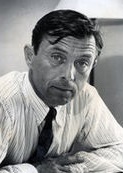
In 1946 New Haven, Conn.-born poet-critic Reed Whitemore (1919-2012) pub. his first poetry book Heroes & Heroines, followed by An American Takes a Walk (1956), The Self-Made Man and Other Poems (1959), The Boy from Iowa: Poems and Essays (1962), Poems, New and Selected (1967), Fifty Poems Fifty (May 22, 1970), The Mother's Breast and the Father's House (1974), The Feel of Rock: Poems of Three Decades (1982), The Past, the Future, the Present: Poems Selected and New (Mar. 1, 1990), Ten from Ten & One More (2007), The Season of Waiting: Selected Poems: 1946-2006 (2007). He becomes U.S. poet laureate #16 in 1964-5 and #28 in 1984-5. "Reed Whittemore owns the only sort of immortality that matters to a writer, which is to have written things that people remember years later." (Garrison Keillor) "I recognize a true Yankee in this man, the sort of Yankee Mark Twain would have loved: direct and modest to the point of wryness. Feel free to laugh but be sure to take him seriously." (Henry Allen) "For what a long time Reed Whittemore has been a central figure in our national letters - his whole career has been one brave protest against dullness and stodginess." (X.J. Kennedy)
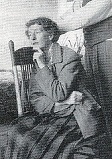

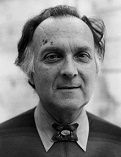
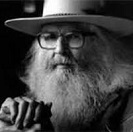

In Apr. 1947 the San Francisco Poetry Renaissance begins when Madeline Gleason (1903-79) (founding mother) organizes the First Festival of Modern Poetry at Marcelle Laubadt's Lucien Labaudt Gallery in San Francisco, Calif., featuring Kenneth Charles Marion Rexroth (1905-82) (founding father, called "Father of the Beats" by Time mag.) along with Robert Edward Duncan (1919-88), William "Bill" Everson (1912-94) (known since 1951 as Brother Antoninus "the Beat Friar"), Muriel Rukeyser (1913-80), and Jack Lester Spicer (1925-65). In 1967 Everson and William Stafford pub. The Achievement of Brother Antoninus: A Comprehensive Selection of his Poems. In 1968 Everson pub. The Springing of the Blade, and A Canticle to the Water Birds, all under the alias Brother Antoninus. In 1969 Everson quits the Dominican Order to marry 3rd wife Susanna Rickson. In 1974 Everson pub. Man-Fate: The Swan Song of Brother Antoninus, about why he quit mast, er, quit being a monk and married a young babe. Everson dies on June 3, 1994 in Santa Cruz, Calif. of Parkinson's after pub. 50+ vols. of poetry.

In 1947 New York City-born Jewish formalist poet Howard Nemerov (1920-91), brother of photographer Diane Arbus pub. his first poetry book The Image and the Law: Poems, followed by Guide to the Ruins (1950), The Vacuum (1955), The Salt Garden (1955), and Mirrors and Windows (1958). In Feb. 1959 he pub. the poem Runes in Poetry; "This is about the stillness in moving things,/ In running water, also in the sleep/ Of winter seeds, where time to come has tensed/ Itself, enciphering a script so fine/ Only the hourglass can magnify it, only/ The years unfold its sentence from the root." He follows with The Next Room of The Dream: Poems and Two Plays (1962), The Blue Swallows (1967), The Winter Lightning: Selected Poems (1968), Gnomes & Occasions: Poems (1973), The Collected Poems of Howard Nemerov (Nov. 30, 1977) (Pulitzer Prize) (Nat. Book Award) ("Here he is with all his runes about him" - Victor Howes), Sentences (1980), which incl. "By Al Lebowitz's Pool", "The Makers", "Monet", "A Christmas Storm", Because You Asked About the Line Between Prose and Poetry ("Sparrows were feeding in a freezing drizzle/ That while you watched turned to pieces of snow/ Riding a gradient invisible/ From silver aslant to random, white, and slow./ There came a moment that you couldn’t tell./ And then they clearly flew instead of fell"), Inside the Onion (1984), War Stories: Poems about Long Ago and Now (1987), Trying Conclusions: New and Selected Poems, 1961-1991 (1992). He becomes U.S. poet laureate #15 in 1963-4 and #33 in 1998-90. "No one since Frost has done as much to move blank verse from where Wordsworth and Coleridge had left it." (Mary Kinzie)
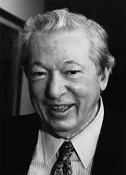
In 1947 Winnfield, La.-born Jefferson Barracks, Mo.-raised poet William Jay Smith (1918-2015) pub. his first poetry book Poems, followed by Celebration at Dark (1950), The Tin Can and Other Poems (1966), Collected Poems 1939-1989 (Oct. 1, 1990), The Cherokee Lottery: A Sequence of Poems (1997), which incl. The Eagle Warrior: An Invocation ("O Eagle-warrior, surrogate of the sun,/ fly off in my mind now/to circle the sun, that 'ascending eagle',/ and with your penetrating eye/ and your calligraphic wing-span/ printed high upon the air,/ follow the westward movement/ of every vanquished tribe,/ O Eagle-warrior, quick-eyed, fierce-beaked,/ tense-taloned,/ be their emblem, be their witness, be their scribe"), and The World Below the Window: Poems 1937-1997 (1998), which incl. "The World Below the Window" ("The geraniums I left last night on the windowsill,/ To the best of my knowledge now, are out there still,/ And will be there as long as I think they will./ And wil be there as long as I think that I/ Can throw the window open on the sky,/ A touch of geranium pink in the tail of my eye"). He becomes U.S. poet laureate #19 in 1968-70. "[William Jay Smith] has given us many of the truest and purest poems an American has written: the most resonantly musical, the most magical." (X.J. Kennedy)
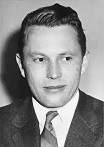
In 1947 after pub. his first poem in John Martin's Magazine at age 8, New York City-born poet Richard Purdy Wilbur (1921-2017) pub. his first poetry book The Beautiful Changes, and Other Poems, which incl. The Beautiful Changes; "Your hands hold roses always in a way that says/ They are not only yours; the beautiful changes/ In such kind ways,/ Wishing ever to sunder/ Things and things' selves for a second finding to lose/ For a moment all that it touches back to wonder." In 1950 he pub. Ceremony, and Other Poems, which incl. Ceremony; "A striped blouse in a clearing by Bazille/ Is, you may say, a patroness of boughs/ Too queenly kind toward nature to be kin./ But ceremony never did conceal,/ Save to the silly eyes, which all allows,/ How much we are the woods we wander in." In 1955 he pub. Richard Wilbur (1921-2017), A Bestiary; illustrations by Alexander Calder incl. Faulkner on the Dog, Machiavelli on the Centaur, Disraeli on the Ape, Sherwood Anderson on the Horse, T.E. Lawrence on the Camel, Plato on the Grasshopper, and Bertrand Russell on the Unicorn. In 1956 he pub. Things of This World (Pulitzer Prize). In 1961 he pub. Advice to a Prophet, and Other Poems. In 1969 he pub. Walking to Sleep: New Poems and Translations, which incl. "The Lilacs", "Playboy", "Running". In 1976 he pub. The Mind-Reader: New Poems; incl. "Cottage Street, 1953", about his meeting with Sylvia Plath, and "For the Student Strikers", about the Kent State massacre. In 1987 he becomes U.S. poet laureate #2. In 1988 he pub. New and Collected Poems (Pulitzer Prize). On Apr. 4, 2000 he pub. Mayflies: New Poems and Translations, which incl. "A Barred Owl", "At Moorditch"; "Crows' Nest", "The Pleasing, Anxious Being"; "For C." ("A passion joined to courtesy and art/ Which has the quality of something made/ Like a good fiddle, like the rose's scent,/ Like a rows window or the firmament"), Mayflies; "Watching those lifelong dancers of a day/ As night closed, I felt myself alone/ In a life too much my own./ More mortal in my separateness than they - / Unless, I thought, I had been called to be/ Not fly or star/ But one whose task is joyfully to see/ How fair the fiats of the caller are." On Dec. 6, 2004 he pub. Collected Poems, 1943-2004. On Nov. 12, 2010 he pub. his last poetry book Anterooms: New Poems and Translations; incl. A Measuring Worm; "This yellow-striped green/ Caterpillar, climbing up/ The steep window screen,/ Constantly (for lack)/ Of a full set of legs) keeps/ Humping up his back./ It's as if he sent/ By a sort of semaphore/ Dark omegas meant/ To warn of Last Things./ Although he doesn't know it,/ He will soon have wings,/ And I too don't know/ Toward what undreamt condition/ Inch by inch I go."
In 1948 the annual Bollingen Prize for Poetry is established by the Bollingen Foundation, founded in 1945 by philanthropist Paul Mellon (1907-99) and his wife Mary Conover Mellon, named after Bollingen Tower, country home of Carl Jung in Bollingen, Switzerland; the first prize is awarded to Ezra Pound for "The Pisan Cantos" by a jury of Library of Congress fellows, pissing-off Congress, which ends their participation, causing the Beinecke Rare Book and Ms. Library of Yale U. to take over; winners incl. Wallace Stevens (1950), John Crowe Ranson (1951), Marianne Moore (1952), Archibald MacLeish and William Carlos Williams (1953), W.H. Auden (1954), Leonie Adams and Louise Bogan (1955), Conrad Aiken (1956), E.E. Cummings (1958), Theodore Roethke (1959), Delmore Schwarz and David Jones (1960), Yvor Winters (1961), John Hall Wheelock and Richard Eberhart (1962), and Robert Frost (1963); in 1963 it becomes a $5K biennial award; in 1961 a parallel prize for best poetry trans. is established, awarded to Robert Fitzgerald for his trans. of Homer's "The Odyssey"; in 1968 the Bollingen Foundation is dissolved, and the Andrew W. Mellon Foundation takes over, establishing an endowment of $100K in 1973.

In 1949 Topeka, Kan.-born, Chicago, Ill.-raised Gwendolyn Elizabeth Brooks (1917-2000) pub. Annie Allen, which incl. "Notes from the Childhood and the Girlhood", "The Anniad", "Appendix to the Anniad", and "The Womanhood", going on to become the first African-Am. to receive a Pulitzer Prize (Poetry). In 1960 she pub. The Bean Eaters; incl. We Real Cool; "We real cool. We/ Left school. We/ Lurk Late. We/ Strike straight. We/ Sing sin. We/ Thin gin. We/ Jazz June. We/ Die soon." In 1968 she pub. In the Mecca; a tenement mother's search for a lost child, with paeons for Medgar Evers and Malcolm X. In 1969 she pub. Riot, about the 1968 Chicago riots and the assassination of MLK Jr.; first in a series on black pride using ordinary language (1969-75), pub. by Dudley Randall's Broadside Press. In 1970 she pub. Family Pictures, which incl. The Life of Lincoln West. In 1971 she pub. Aloneness. In 1972 she pub. the autobio. Report from Part One; "I — who have 'gone the gamut' from an almost angry rejection of my dark skin by some of my brainwashed brothers and sisters to a surprised queenhood in the new Black sun — am qualified to enter at least the kindergarten of new consciousness now. New consciousness and trudge-toward-progress. I have hopes for myself... I know now that I am essentially an essential African, in occupancy here because of an indeed 'peculiar' institution... I know that Black fellow-feeling must be the Black man's encyclopedic Primer. I know that the Black-and-white integration concept, which in the mind of some beaming early saint was a dainty spinning dream, has wound down to farce... I know that the Black emphasis must be not against white but FOR Black... In the Conference-That-Counts, whose date may be 1980 or 2080 (woe betide the Fabric of Man if it is 2080), there will be no looking up nor looking down." In 1975 she pub. Beckonings. In 1985-6 she becomes U.S. poet laureate #30 (first black woman).
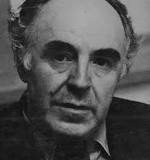
In the 1950s the postmodernist Confessional School of Poetry emerges in the U.S., focusing on the "I", esp. extreme moments of personal experience incl. trauma, mental illness, sexuality, and suicide, with leaders incl. John Berryman, Allen Ginsberg, Robert Lowell, Sylvia Plath, Anne Sexton, and W.D. Snodgrass; in 1959 Macha Louis Rosenthal (1917-66) pub. the Robert Lowell review Poetry as Confession, coining the term, with the soundbyte that Confessional poetry goes "beyond customary bounds of reticence or personal embarrassment"; the New York School is founded in reaction, producing stream-of-consciousness poetry with vivid imagery, inspired by Surrealism; leaders incl. Frank O'Hara, along with John Ashbery, Ted Berrigan, Joseph Ceravolo, Kenward Elmslie, Barbara Guest, Kenneth Koch, Frank Lima, Bernadette Mayer, Alice Notley, Frank O'Har, Ron Padgett, Tom Savage, James Schuyler, and Lewis Walsh.
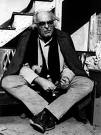


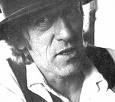
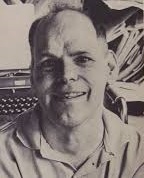
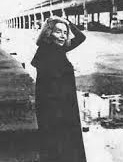
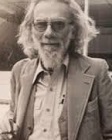
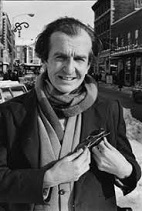
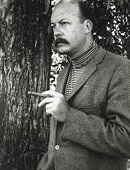
In 1950 Am. poet Charles Olson (1910-70) pub. the essay Projective Verse, calling for "open field" composition to replace traditional closed poetic forms, with the new form to be based on the line, where each line is a unit of breath and utterance, and the content to consist of "one perception immediately and directly [leading] to a further perception", becoming the manifesto of the Black Mountain (Projectivist) Poets of N.C., led by Harvard dropout Robert Creeley (1926-2005) at Black Mountain College in Asheville, N.C. (founded 1933) ("Form is never more than an extension of content") create the idea of a "counterculture"; poets incl. Paul Blackburn (1926-71), Edward Merton "Ed" Dorn (1929-99), Robert Edward Duncan (1919-88), Laurence Joel "Larry" Eigner (1927-96), Hilda Morley (1916-98), Joel Lester Oppenheimer (Jacob Hammer) (1930-88), John Joseph Wieners (1934-2002), and Jonathan Williams (1929-2008); when the college closes in 1957, he heads for San Francisco and keeps on after hooking up with the San Fancisco Renaissance and Beat poets. In 1968 Dorn pub. the 6-part poem Gunslinger, about a demigod cowboy and his talking horse Claude Levi-Strauss, who travel the Am. Southwest with a saloon madam searching for Howard Hughes, followed by "Book II" in 1969, "The Cycle (Book 2 1/2)" in 1971, "The Winterbook (Book III)" in 1972, "Bean News (Gunslinger's secret book) in 1972, and Book IIII in 1975; "We need help, the Poet reckoned"; "Talismans of perfect writing" (Stephen King). In 1968 Dorn pub. The Midwest Is That Space Between the Buffalo Statler and the Lawrence Eldridge, T. Williams. In 1969 he pub. The Cosmology of Finding Your Spot, and Twenty-Four Love Songs.
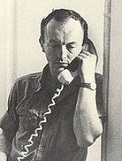
In 1951 Baltimore, Md.-born Grafton, Mass.-raised New York School gay poet-writer-critic Francis Russell "Frank" O'Hara (1926-66), known for writing poetry that sounds "like entries in a diary" pub. his first book of poetry A City Winter and Other Poems, with two drawings by Larry Rivers, followed by Oranges: 12 Pastorals (1953), and Meditations in an Emergency (1957) (title is a play on John Donne's "Devotions upon Emergent Occasions"). In 1960 he becomes asst. curator at the Museum of Modern Art (MoMA), connecting him with artists incl. Norman Bluhm, Mike Goldberg, Grace Hartigan, Willem de Kooning, Joan Mitchell, and Larry Rivers (who becomes his lover). He follows with Second Avenue w/cover by Larry Rivers (1960), and Odes w/prints by Michael Goldberg (1960). Lunch Poems (1964), which incl. "A Step Away From Them" ("It's my lunch hour, so I go/ for a walk among the hum-colored/cabs"), "The Day Lady Died" ("It is 12:20 in New York a Friday/ three days after Bastille Day, yes/ it is 1959 and I go get a shoeshine"), "Personal Poem" ("Now when I walk around at lunchtime/ I have only two charms in my pocket"; "I wonder if one person out of 8,000,000 is thinking of me"), and Love Poems (Tentative Title) (1965). In 1971 he posth. pub. The Collected Poems of Frank O'Hara (Nat. Book Award).

In 1951 Baltimore, Md.-born Jewish poet Adrienne Cecile Rich (1929-2012) pub. her first poetry book A Change of World, which is selected by W.H. Auden for the Yale Younger Poets Award, followed by The Diamond Cutters, and Other Poems (1955), Snapshots of a daughter-in-law: poems, 1954-1962 (1963), Necessities of life: poems, 1962-1965 (1966), Selected Poems (1967), Leaflets (1969), and The Will to Change: Poems 1968-1970 (1971). In 1973 she pub. the angry feminist poems Diving into the Wreck: Poems, 1971-1972; she shares her Nat. Book Award feminist-style with sister nominees Alice Walker and Audre Lorde; "I am she: I am he/ whose drowned face sleeps with open eyes/ whose breasts still bear the stress/ whose silver, copper, vermeil cargo lies/ Obscurely inside barrels half-wedged and left to rot/ we are the half-destroyed instruments that once held to a course/ the water-eaten log/ the fouled compass." In 1975 she pub. Poems: Selected and New, 1950-1974. In 1978 she pub. The Dream of a Common Language, a collection of poetry by and for women, the first after she comes out as a lesbian in 1976, which incl. "Power", about Marie Curie, "Twenty-One Love Poems", lesbian love poems, "Natural Resources", "Transcendental Etude". She follows with A Wild Patience Has Taken Me this Far: Poems 1978-1981 (1982), Sources (1983), The Fact of a Doorframe: Poems Selected and New, 1950-1984 (1984), Your Native Land, Your Life: Poems (1986), Time's Power: Poems, 1985-1988 (1989), An Atlas of the Difficult World: Poems 1988-1991 (1991), Collected Early Poems, 1950-1970 (1993), Dark Fields of the Republic: Poems, 1950-1970 (1995), Selected Poems, 1950-1995 (1996), Midnight Salvage: Poems, 1995-1998 (1999), Fox: Poems 1998-2000 (2001), The School Among the Ruins: Poems, 2000-2004 (2004), Telephone Ringing in the Labyrinth: Poems 2004-2006 (2007), and Tonight No Poetry Will Serve: Poems 2007-2010.

In 1952 Arlington, Mass.-born poet Robert White Creeley (1926-2005) pub. his first poetry book Le Fou before graduating from Black Mountain College in 1955, going on to pub. 60+ books; In 1959 he pub. A Form of Women, which incl. A Form of Women, and Air: The Love of a Woman; "The love of a woman/ Is the possibility which/ surrounds her as hair/ her head, as the love of her/ follows and describes her. But what if/ they die, then there is/ still the aura"; in 1960 he pub. For Love: Poems 1950-1960, which makes him a star; it incl. Heroes; "In those stories the hero/ is beyond himself into the next/ thing, be it those labors of Hercules, or Aeneas going into death." In 1968 he pub. Divisions and Other Early Poems; also The Finger; also 5 Numbers; also Numbers. In June 1969 he pub. Pieces; "Could write of fucking--/ rather its instant or the slow/ longing at times of its approach--/ how the young man desires/ how, older, it is never known/ but, familiar, comes to be so"; America; "America, you ode for reality!/ Give back the people you took"; Hero; Mazatlan: Sea; The Finger: Poems 1966-1969. in 1982 he pub. The Collected Poems of Robert Creeley 1945-1974, which incl. The Hero; "Each voice which was asked/ spoke its words, and heard/ more than that, the fair question, the onerous burden of the asking./ And so the hero, the/ hero! stepped that gracefully/ into his redemption, losing/ or gaining life thereby"; in 2006 he posth. pub. Collected Poems of Robert Creeley 1975-2005.

In 1952 Hamden, Conn.-born poet Donald Andrew "Don" Hall Jr. (1928-) pub. his first poetry book Fantasy Poets Number Four. In 1961 he pub. A Hundred Thousand Straightened Nails. In 1975 he pub. A Blue Wing Tilts at the Edge of the Sea: Selected Poems 1964-1974. On Apr. 11, 2002 he pub. The Painted Bed. On Oct. 1, 2006 he becomes U.S. poet laureate #14 (until Aug. 2, 2007). In 2006 he pub. White Apples and the Taste of Stone. In 2015 he pub. The Selected Poems of Donald Hall.

In 1952 New York City-born William Stanley "W.S." Merwin (1927-) pub. his first poetry book A Mask for Janus, which wins the Yale Younger Poets Prize. In 1970 he pub. The Carrier of Ladders (Pulitzer Prize). On June 3, 1971 he pub. "On Being Awarded the Pulitzer Prize" in The New York Review of Books, explaining his objections to the Vietnam War and stating that he's donating his prize money to the draft resistance movement, pissing-off W.H. Auden, who got his debut poetry book pub. in 1952. In 1998 he pub. Folding Cliffs, a verse novel about Hawaiian history. In 2008 he pub. The Shadow of Sirius (Pulitzer Prize). In June 2010 he becomes U.S. poet laureate #17.





In 1953 City Lights Bookstore (named after the 1931 Charles Chaplin film) at 261 Columbus Ave. in San Francisco, Calif. is founded by unwholesome-but-not-exiled bearded Yonkers, N.Y.-born poet Lawrence Ferlinghetti (1919-) and Peter D. Martin as the first all-paperback bookstore in the U.S., becoming home to the growing anti-materialist nonviolent anti-establishment Beat Generation of poets (they had grappled with affluence and lost and were consequently beat by the system, or just liked jazz beats, or like to beat their meat?), which went along with the Beatnik Movement, which began in Los Angeles' Venice West; males like beards, khaki trousers, and sandals; females like tousled hair, black leotards, and thick "raccoon" makeup around their eyes; Jean-Louis "Jack" Kerouac (1922-69), Newark, N.J. gay Jew-turned-Buddhist Irwin Allen Ginsberg (1926-97), and William Seward Burroughs II (1914-97) become the Beat Trinity, producing benzedrine-fueled speed-rap "bop kaballa"; Times Square bi con artist and junkie Herbert Huncke (1915-96) AKA "the Mayor of 42nd St." gives the Beats their name. In 1954 Ginsberg undergoes a year of psychotherapy this year and next, and ditches his career as a fledgling market research consultant, producing his poem "Howl!" in a nonstop frenzy.

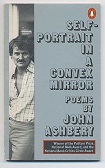
In 1953 Rochester, N.Y.-born New York School Surrealist Modernist gay poet John Lawrence Ashbery (1927-2017) pub. his debut poetry book Turandot and Other Poems, followed by Some Trees, which wins the Yale Younger Poets Prize; "These are amazing: each/ Joining a neighbor, as though speech/ Were a still performance./ Arranging by chance/ To meet as far this morning/ From the world as agreeing/ With it, you and I/ Are suddenly what the trees try/ To tell us we are." He follows with The Tennis Court Oath (1962), which engages in radical experimentation, turning off critics, Rivers and Mountains (1966), The Double Dream of Spring, which incl. Soonest Mended (from the saying "Least said, soonest mended"); "Barely tolerated, living on the margin/ In our technological society, we were always having to be rescued/ On the brink of destruction, like heroines in 'Orlando Furioso'/ Before it was time to start all over again." He follows with Three Poems (1972), which incl. The New Spirit. He follows with The Vermont Notebook (1975) (illustrated prose poems), and Self-Portrait in a Convex Mirror (1975) (Pulitzer Prize); title after a painting by Parmigianino; makes him a rock star; "But as the principle of each individual thing is/ Hostile to, exists at the expense of all the others/ As philosophers have often pointed out, at least/ This thing, the mute, undivided present,/ Has the justification of logic, which/ In this instance isn't a bad thing/ Or wouldn't be, if the way of telling/ Didn't somehow intrude, twisting the end result/ Into a caricature of itself. This always/ Happens, as in the game where/ A whispered phrase passed around the room/ Ends up as something completely different./ It is the principle that makes works of art so unlike/ What the artist intended. Often he finds / He has omitted the thing he started out to say / In the first place." He follows with Houseboat Days (1977), which incl. Syringa. He follows with As We Know (1979), which incl. "Litany". He follows with Shadow Train (1981), A Wave (1984), which incl. But What Is the Read To Make of This?; "Those delicious few words spread around like jam / Don’t matter, nor does the shadow." He follows with At North Farm (1984), and April Galleons (1987), which incl. Adam Snow. In 1988 his Bridge Poem in metal letters is placed on the 375-ft.-wide Irene Hixon Whitney Bridge in Minneapolis, Minn. In 1989 David Bergman pub. Reported Sightings, Art Chronicles 1957-1987, a collection of his art criticism. Flow Chart (1991), Hotel Lautreamont (Lautréamont) (1992), And the Stars Were Shining (1994), Can You Hear, Bird? (1995), and Wakefulness (1998), which incl. Wakefulness. He follows with Girls on the Run (1999) (the Vivians try to create an ideal world; inspired by Chicago artist Henry Darger), Your Name Here (2000), As Umbrellas Follow Rain (2001), Chinese Whispers (2002), Where Shall I Wander (2005), and Notes from the Air: Selected Later Poems (2007). On Aug. 27, 2007 MTV announces that they're making gay bud John Ashbery (1927-2017) their first poet laureate. A Worldly Country (2007), Collected Poems 1956-87 (2008) (first living poet to be pub. by the Library of America), Planisphere (2009), which incl. They Knew What They Wanted (all movie titles). He follows with Quick Question (2012), East February (2014), Breezeway (2015) ("Batman came out and clubbed me"), and Commotion of the Birds (2016). "No figure looms so large in American poetry over the past 50 years as John Ashbery... No American poet has had a larger, more diverse vocabulary, not Whitman, not Pound." (Langdon Hammer, Yale U.) "The last figure whom half the English-language poets alive thought a great model, and the other half thought incomprehensible." (Stephanie Burt, Harvard U.)

In 1954 after emigrating to gay San Francisco, Calif. to teach at Stanford U., England-born gay poet Thomson William "Thom" Gunn (1929-2004), a disciple of Yvor Winters pub. his first book of poetry Fighting Terms: Poems. In 1982 he pub. The Passages of Joy. In 1992 he pub. his masterpiece The Man with Night Sweats, about the AIDS crisis in gay San Francisco, which incl. The Man With Night Sweats. In 2000 he pub. Boss Cupid.
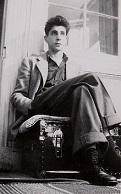

In 1954 after serving with the U.S. 97th Infantry Div. in Germany in WWII and helping liberate Flossenburg Concentration Camp, causing him to be haunted by the Holocaust for life incl. suffering a nervous breakdown in 1959, New York City-born Jewish poet Anthony Evan Hecht (1923-2004) pub. his first poetry book A Summoning of Stones, followed by The Hard Hours (1967) (Pulitzer Prize), Millions of Strange Shadows (1977), which incl. "Apprehensions", The Venetian Vespers (Jan. 1979), The Transparent Man (July 7, 1990), Flight Among the Tombs: Poems (Jan. 12, 1998), which incl. "Sacrifice", "Road to Damascus", "A Certain Slant", "Witness", and The Darkness and the Light (2001). He becomes U.S. poet laureate #27 in 1982-4.


In 1954 Oakland, Calif.-born closet gay poet Rodney Marvin "Rod" McKuen (1933-2015) pub. his debut vol. And Autumn Came. In 1964 Bob Shane (1934-) pub. Seasons in the Sun, composed in 1961 as "Le Moribond" (The Dying Man) by Jacques Brel (1929-78) of Belgium and tr. into English by Rod McKuen (who met him in France in the early 1960s), becoming a 1974 hit by Terry Jacks (1944-). In 1966 McKuen pub. the bestseller Stanyan Street & Other Sorrows. In 1967 he pub. the bestseller Listen to the Warm. In 1967 the San Sebastian Strings release the album The Sea featuring the single The Storm, written by Rod McKuen and composed by Anita Kerr. In 1968 he pub. the bestseller Rod McKuen (1933-2015), Lonesome Cities. In 1969 Frank Sinatra (1915-98) releases the album A Man Alone: The Words and Music of McKuen, which incl. My Way, w/lyrics by Paul Anka; melody from "Comme d'Habitude" (As Usual) (1967) by Claude "Clo Clo" Francois and Jacques Revaux, and If You Go Away, tr. by Rod McKuen from Jacques Brel's "Ne me quitte pas". In Jan. 1970 McKuen pub. the bestseller Caught in the Quiet. In 1970 McKuen releases the album Greatest Hits 2, which incl. the hit song Jean from the 1969 film "The Prime of Miss Jean Brodie"; he also releases Soldiers Who Wanna Be Heroes; "Soldiers who wanna be heroes/ number practic'lly zero/ But there are millions/ who wanna be civilians". In 1971 he pub. the bestseller Fields of Wonder. In 1972 he pub. the bestsellers And to Each Season and Moment to Moment. In 1973 he pub. the bestseller Come to Me in Silence. In 1975 he pub. the bestsellers Beyond the Boardwalk, Celebrations of the Heart, and The Sea Around Me... In 1978 he pub. the bestseller Coming Close to the Earth. In 1979 he pub. the bestseller We Touch the Sky. On Oct. 1, 1980 he pub. the bestseller The Power Bright and Shining. In 1983 he pub. the bestseller The Sound of Solitude. In 1984 he pub. the bestseller Suspension Bridge. In 1986 he pub. the bestsellers, Intervals, and Valentines. McKuen dies on Jan. 29, 2015 in Beverly Hills, Calif. after selling 60M books of poetry and 100M recordings worldwide.

In 1955 Whiteville, N.C.-born poet Archie Randolph "A.R." Ammons (1926-2001), known for his use of the colon as his "signature" pub. his first book of poetry Ommateum: With Doxology: Poems. In 1964 he pub. Expressions of Sea Level, followed by Corsons Inlet: A Book of Poems (1965), which incl. "Corson's Inlet", "Jungle Knot", "Coon Song", "Four Motions for the Pea Vines", Tape for the Turn of the Year (1965), written on a roll of adding machine tape on Dec. 6, 1963-Jan. 10, 1964, Northfield Poems (1966), Selected Poems (1968), Uplands: New Poems (1970), Briefings: Poems Small and Easy (1971), Collected Poems, 1951-1971 (1972) (Nat. Book Award), Sphere: The Form of a Motion (1974) (Bollingen Prize), about the Earth, Diversifications (1975), which incl. "Narrows", "Ballads", "Pray without Ceasing", The Selected Poems: 1951-1977 (1977), Highgate Road (1977), The Snow Poems (1977) (about Upstate N.Y.), Selected Longer Poems (1980), A Coast of Trees (1981) (Nat. Book Critics Circle Award), which incl. "Swells", "Easter Morning", "Keepsake", "Givings", "Persistences", Worldly Hopes: Poems (1982), Lake Effect Country: Poems (1983), The Selected Poems: Expanded Edition (1986), Sumerian Vistas (1987), The Really Short Poems of A.R. Ammons (1991), and Garbage (1993); his masterpiece?; "Mike,/ the young kid who does things for us, cut down the/ thrift with his weedeater, those little white/ flowers more like weedsize more than likely:/ sometimes called cliff rose: also got the grass/ out of the front ditch now too wet to mow, slashed:/ the dispositional axis is not supreme (how tedious)/ and not a fiction (how clever) but plain (greatness/ flows through the lowly) and a fact (like as not)"; he follows with The North Carolina Poems (1994) (2nd ed. 2010), Brink Road: Poems (1996), about his summer vacation on Brink Road, which "lies off NY 96 between Candor and Catonik"; which incl. "Summer Place", "Local Antiquities", "The Story"; Glare (1997), which incl. "Strip" and "Scat Scan", Bosh and Flapdoodle: Poems (2005) (posth.), and The Mule Poems (2010) (posth.). "In the thirty years since A. R. Ammons published his first poems, he has fashioned a body of work that achieves a rare amplitude, specific gravity, and high seriousness. He is a poet of the American Sublime - a nature poet, as we say - standing in the tradition of Wordsworth, Emerson, and Whitman. Amidst the hue and cry of contemporary poetical factions, his work pursues its own integrity: clear, unblinking in its self-knowledge, remarkable for its radiant density of argument and feeling." (Richard Locke) "The scientific world is beautifully in balance with the perceptual one." (Helen Vendler) "A maker who would have delighted Whitman and Emerson... No contemporary poet, in America, is likelier to become a classic." (Harold Bloom) "Not so much looking for the shape as being available to any shape that may be summoning itself through me from the self not mine but ours." (Ammons)


On Oct. 7, 1955 the Six Gallery Reading, AKA Six Angels in the Same Performance at the Six Gallery at 3119 Fillmore St. in San Francisco, Calif., organized by gay poets Irwin Allen Ginsberg (1926-97) and Jack Spicer (1925-65) brings the East and West Coast factions of the Beat Generation for his first public reading of "Howl", the audience chipping in to buy jugs of wine first, poets incl. Philip Lamantia, Michael McClure, Gary Snyder, and Philp Whalen; old fart poet Kenneth Rexroth introduces them; Jack Kerouac shows up drunk, cheering the other poets on; the next day Lawrence Ferlinghetti telegrams Ginsberg offering to pub. his work; UCB student Ann Charters first meets Kerouac, going on to pub. his bio. "Kerouac" in 1973. In Nov. 1956 Allen Ginsberg pub. Howl and Other Poems, written during a peyote vision; "I saw the best minds of my generation destroyed by madness" (opening line); "America I'm putting my queer shoulder to the wheel"; "Hold back the edges of your gowns, Ladies, we are going through hell" (intro. by William Carlos Williams); San Francisco police confiscate it from publisher Lawrence Ferlinghetti for obscenity, but on Oct. 3, 1957 Judge Clayton W. Horn finds "redeeming social importance", ruling it not obscene, with the soundbyte: "Would there be any freedom of press or speech if one must reduce his vocabulary to vapid innocuous euphemisms?"; the man "who jumped off the Brooklyn Bridge and walked away unknown and forgotten into the ghostly daze of Chinatown" is New York poet Naphtali "Tuli" Kupferberg (1923-2010) of The Fugs. In 1961 Ginsberg pub. Kaddish and Other Poems, 1958-1960; about his dead mother; written on amphetamines; also Empty Mirror: Early Poems. In 1973 he pub. The Fall of America: Poems of These States, 1965-71, which incl. "Done, Finished with the Big Cock", "Elegy: Che Guevara"; gay beat poet Allen Ginsberg wins a Nat. Book Award and is made a member of the Am. Academy and Inst. of Arts and Letters, finally attaining respectability; after years of lobbying he gets his gay friend William S. Burroughs inducted in 1983.

In 1957 Tacoma, Wash.-born novelist-poet Richard Gary Brautigan (1935-84) pub. his debut poetry book The Return of the Rivers In 1958 he pub. The Galilee Hitch-Hiker. In 1959 he pub. Lay the Marble Tea; title taken from an Emily Dickinson poem. In 1960 he pub. The Octopus Frontier. In 1967 he pub. All Watched Over by Machines of Loving Grace. In 1968 he pub. Please Plant This Book; eight poems on seed packages. In 1969 he pub. The Pill Versus the Springhill Mine Disaster; "When you take your pill/ It's like a mine disaster./ I think of all the people/ lost inside of you." In 1970 he pub. Rommel Drives on Deep into Egypt; cover shows model Beverley Allen sitting in a sandbox in Golden Gate Park; "Rommel is dead./ His army has joined the quicksand legions of history where the battle is always/ a metal echo saluting a rusty shadow./ His tanks are gone./ How's your ass?"; "An amalgam of Zen Buddhism, William Carlos Williams, and the stoned comic strips of R. Crumb." (Carey A. Horowitz) In 1976 he pub. Loading Mercury with a Pitchfork; "Loading mercury with a pitchfork/ your truck is almost full. The neighbors/ take a certain pride in you. They/ stand around watching." In 1978 he pub. June 30th, June 30th (last poetry book). On Sept. 16, 1984 he commits suicide in Bolinas, Calif.

In 1958 after starting his career in 1954 pub. items in The New Yorker, versatile Reading, Penn.-born novelist-critic and short story writer John Hoyer Updike (1932-2009) pub. his first poetry book The Carpentered Hen and Other Tame Creatures, which incl. "Why the Telephone Wires Dip and the Poles Are Cracked and Crooked" (carved on his gravestone) ("The old men say/ young men in gray/ hung this thread across our plains/ acres and acres ago./ But we, the enlightened, know/ in point of fact it's what remains/ of the flight of a marvelous crow/ no one saw:/ Each pole, a caw.") He follows with Telephone Poles and Other Poems (1963), which incl. "The Short Days" (Then rid rims gild the gutter-spouts;/ The streetlamp pales; the milk-truck fades;/ And housewives - husbands gone - wash doubts/ Down sinks and raise the glowing shades"). He follows with Midpoint (1969), Cunts: Upon Receiving The Swingers Life Club Membership Solicitation (1974), Tossing and Turning (1977), Facing Nature (1985), Collected Poems 1953-1993 (1993), Americana and Other Poems (2001), and Endpoint and Other Poems (2009). "I began as a writer of light verse, and have tried to carry over into my serious or lyric verse something of the strictness and liveliness of the lesser form." (Updike)

In 1959 Lowell, Mass.-born Roman Catholic-turned-Buddhist Beat poet-novelist Jack Kerouac (Jean-Louis Kérouac) (1922-69), "a jazz poet blowing a long blues in an afternoon jazz session on Sunday" pub. his first poetry book Mexico City Blues; "Everything/ Is Ignorant of its own emptiness --/ Anger/ Doesnt like to be reminded of fits --"; In 1971 he posth. pub. Scattered Poems; incl. "San Francisco Blues", "Pull My Daisy", "American haiku"; "HERE DOWN ON DARK EARTH/ before we all go to Heaven/ VISIONS OF AMERICA/ All that hitchhikin/ All that railroadin/ All that comin back/ to America —Jack Kerouac". In 1992 he posth. pub. Pomes All Sizes.

In 1959 Waterloo, Iowa-born poet Mona Jane Van Duyn (1921-2004)), known for occasional poems and minimalist sonnets pub. her first poetry book Valentines to the Wide World, followed by A Time of Bees (1964), To See, To Take: Poems (1970) (Nat. Book Award), Bedtime Stories (1972), Merciful Disguises: Poems Published and Unpublished (1973), Letters From a Father, and Other Poems (1982), Near Changes (1990) (Pulitzer Prize), If It Be Not I: Collected Poems, 1959-1982 (1994), Firefall (Dec. 7, 1992), about a nightly Yosemite attraction where embers are poured from a cliff, which incl. "Falls" (about seeing Niagara Falls for the first time) ("Wild for the blind, helpless confinement to send me/ over the lip in a will-less fall, thrown/ from my safe observant stand, tossed, rammed,/ broken, drowned perhaps - but love alone.../ could build no barrel"), "Delivery", and Selected Poems (2003) (posth.). In 1992-3 she becomes U.S. poet laureate #36. "It is not only that the best of her poems teaches us so much about life, but that life, over a long time, teaches us the truth about these poems." (Howard Nemerov)

In Oct. 1960 Boston, Mass.-born poet-novelist Sylvia Plath (1932-63) (AKA Victoria Lucas), wife (since 1956) of Ted Hughes pub. her first vol. of poetry The Colossus and Other Poems; "My hours are married to shadow./ No longer do I listen for the scrape of a keel/ On the blank stones of the landing". They are dancing and stamping on you./ They always knew it was you./ Daddy, daddy, you bastard, I'm through." On Feb. 11, 1963 (early a.m.) she commits suicide in her flat at 23 Fitzroy Rd., Primrose Hill, London by putting her head in a gas oven at her flat at 23 Fitzroy Rd., Primrose Hill after hubby Ted Hughes leaves her in Sept. for German-born Assia Esther Wevill (nee Gutmann) (1927-69) (who later commits suicide the same way), causing a burst of creativity; she has been taking anti-depressants for a few days, but not long enough to take full effect; her gravestone is inscribed "Even amidst fierce flames the golden lotus can be planted." In 1965 she posth. pub. Ariel, which incl. Ariel, Daddy; "I lived in a black shoe for thirty years"; "Daddy, I have had to kill you"; "I may be a bit of a Jew"; "There's a stake in your fat black heart/ And the villagers never liked you./ They are dancing and stamping on you./ They always knew it was you./ Daddy, daddy, you bastard, I'm through."; Tulips "I am nobody; I have nothing to do with explostions"; "I didn't want any flowers, I only wanted/ To lie with my hands turned up and be utterly empty.": The Munich Mannequins, which calls Munich the "morgue between Paris and Rome", and becomes famous for the opening line "Perfection is terrible, it cannot have children", Lady Lazarus, where she appears to believe she is Jewish, and predicts her suicide?; "Out of the ash/ I rise with my red hair/ And I eat men like air." In 1971 she posth. pub. Crossing the Water "Black lake, black boat, two black, cut-paper people./ Where do the black trees go that drink here?/ Their shadows must cover Canada."; also Winter Trees. In 1982 she wins a posth. Pulitzer Prize for Poetry for The Collected Poems (1981). In 2006 her unpub. poem Ennui is discovered.
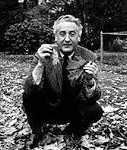
In 1960 Donald Merriam Allen (1912-2004) (ed.) pub. The New American Poetry, 1945-1960, which documents the "third generation" of Am. modernist poets, becoming a std. work; Robert Lowell describes the difference between the old and new poets as the difference between the cooked and the raw.

In 1960 Los Angeles, Calif.-based Andernach, Prussia-born poet-novelist Henry Charles (Heinrich Karl) Bukowski (1920-94), later known for his column Notes of a Dirty Old Man in the underground paper Open City (1967-9), and for his stories about his alter ego Henry Chinaski pub. his first poetry book Flower, Fist, and Bestial Wail, followed by It Catches My Heart in Its Hands (1963), Crucifix in a Deathhand (1965), At Terror Street and Agony Way (1968), and Poems Written Before Jumping Out of an 8 Story Window (1968), going on to become known as "the Poet Laureate of Low Life/Skid Row".

In 1960 Atlanta, Ga.-born poet-novelist James Lafayette Dickey (1923-97) pub. his first poetry book Into the Stone and Other Poems, followed by Drowning with Others (Jan. 1, 1962) ("At the risen moon with such power/ That my steps on the light of the ripples/ Might be sustained./ Beneath me is nothing but brightness/ Like the ghost of a snowfield in summer./ As I move toward the center./ Of the lake,/ Which is also the center of the moon"), Two Poems of the Air (1964), Helmets (Jan. 1, 1964), Buckdancer's Choice: Poems (1965) (Nat. Book Award), which incl. "The Fire-Bombing", "The Fiend", Poems 1957-1967 (June 1, 1967), The Achievement of James Dickey: A Comprehensive Selection of His Poems (1968), The Eye-Beaters, Blood, Victory, Madness, Buckhead and Mercy (1970), which incl. "Diabetes" ("I thirsted like a prince... my belly going round and round with self-/ Made night-water, gangrene and kidney/ Failure... boils blindness skin trouble falling,/ Teeth coma and death"), "Messages", "Butterflies", "Giving a Son to the Sea" ("And I must let you go, out of your gentle/ Childhood into your own man suspended"), "Apollo", "The Place", "The Cancer Match", "Venom" ("Turn the poison/ Round turn it back on itself/ O turn it/ Good: better than life they whisper:/ Turn it, they hammer whitely: Turn it, turn it,/ Brother", "Blood", "In the Pocket" ("My friends are crumbling/ Around me the wrong color is looming"), "Madness", "The Eye-Beaters", Exchanges (1971), For the Death of Vince Lombardi (1971), The Zodiac (1976), based on poetry by Dutch sailor Hendrik Marsman, Veteran Birth: The Gadfly Poems 1947-49 (1978), Head-Deep in Strange Sounds: Free-Flight Improvisations from the UnEnglish (1979), The Strength of Fields (1979), Failing, May Day Sermon and Other Poems (Jan. 1, 1981), The Early Motion (1981), Puella (1982), Varmland (Värmland) (1982), False Youth: Four Seasons (1983), For a Time and Place (1983), Intervisions (1983), The Central Motion: Poems 1968-79 (1983), Night Hurdling: Poems, Essays, Conversations, Commencements and Afterwords (Nov. 1, 1983), Bronwen, The Traw, and the Shape-Shifter: A Poem in Four Parts (1986), The Eagle's Mile (1990), The Whole Motion: Collected Poems 1949-92 (Mar. 15, 1992), James Dickey: The Selected Poems (Sept. 30, 1998) (posth.), and The Complete Poems of James Dickey (Mar. 13, 2013) (posth.). In 1966-8 he becomes U.S. poet laureate #18. In 1970 he pub. the novel Deliverance, which is filmed in 1972 by John Boorman, making him a star.

In 1960 Providence, R.I.-born Galway Kinnell (1927-2014) (follower of Walt Whitman) pub. his first poetry book What a Kingdom It Was. In 1968 he pub. Body Rags; "Focuses on our painful attachment to the minimal shreds of mortality". In 1971 he pub. The Book of Nightmares; "And then/ you shall open/ this book, even if it is the book of nightmares." In 1974 he pub. The Avenue Bearing the Initial of Christ into the New World: Poems 1953-1964; skid row Ave. C in New York City. In 1982 he pub. Selected Poems (Pulitzer Prize); "She takes him and talks/ him more swollen. He kneels, opens/ the dark, vertical smile/ linking heaven with the underneath."

In 1960 after spending WWII in a camp for conscientious objectors, Hutchinson, Kan.-born late-bloomer poet William Edgar Stafford (1914-93) (friend of Robert Bly), known for keeping a daily journal in 1951-91 pub. his first poetry book West of Your City, followed by Traveling through the Dark (1962) (Nat. Book Award), about encountering a freshly-killed doe on a mountain road and discovering that it's carrying a live fawn. He follows with The Rescued Year (1965), Eleven Untitled Poems (1968), Weather: Poems (1969), Allegiances (1970), Temporary Facts (1970), Poems for Tennessee (1971) (w/Robert Bly and William Matthews), In the Clock of Reason (1973), Someday, Maybe: New Poems (June 1, 1973), That Other Alone (1973), Going Places: Poems (1974), The Earth (1974), North by West (1975) (w/John Meade Haines), Stores That Could Be True: New and Collected Poems (1977), and Writing the Australian Crawl: Views on the Writer's Vocation (1978). He follows with Passwords (1980), which incl. "A Program of Poems" ("Might people stumble and wander/ for not knowing the right words,/ and get lost in their wandering?/ So - should you stand in the street/ answering all passwords/ day and night for any stranger?/ You couldn't do that./ But sometimes your words/ might link especially to some other person./ Here is a package./ a pogram of passwords./ It is to bring strangers together"), Things That Happen When There Aren't Any People (1980), A Glass Face in the Rain (Sept. 1, 1982), Roving Across Fields: A Conversation and Uncollected Poems 1942-1982 (1983), Brother Wind (1986), A Scripture of Leaves (Dec. 1, 1989), and Fin, Feather, Fur (1989). He follows with Kansas Poems of William Stafford (June 1, 1990), My Name Is William Tell: Poems (1992), The Darkness Around Us Is Deep: Selected Poems (1993), Holding onto the Grass (1994), Learning to Live in the World: Earth Poems (Nov. 30, 1994), The Methow River Poems (May 1, 1995), Even in Quet Places (1996), The Way It Is: New and Selected Poems (1998), and Every War Has Two Losers: William Stafford on Peace and War (2003). He becomes U.S. poet laureate #20 in 1970-1. In 1975 he becomes poet laureate of Ore. (until 1990). He goes on to compose 22K poems and pub. 3K of them. In 2006 his son Kim Stafford posth. pub. his memoir Down in My Heart: Peace Witness in War Time.

On June 1, 1961 Newark, N.J.-born African-Am. poet Amiri Baraka (Leroi Jones) (1934-) pub. his debut poetry book Preface to a Twenty Volume Suicide Note, incl. Preface to a Twenty Volume Suicide Note. In 1966 he pub. Home: Social Essays, incl. "Cuba Libre", and "The Legacy of Malcolm X and the Coming of the Black Nation". In 1969 he pub. Black Magic: Collected Poetry 1961-1967. In 1970 he pub. It's Nation Time. In 1971 he pub. Raise Race, Rays, Raize: Essays Since 1965. In 1975 he pub. Hard Facts. In 1979 he pub. Poetry for the Advanced.
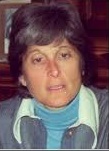
In 1961 Philadelphia, Penn.-born Jewish poet Maxine Kumin (1925-2014) pub. her first poetry book Halfway, which incl. One Dead Friend, and 400-Meter Free Style. In 1965 she pub. The Privilege; incl. Pawnbroker. In 1970 she pub. The Nightmare Factory. In 1971 she pub. The Abduction. In 1972 she pub. Up Country: Poems of New England (Pulitzer Prize). In 1975 she pub. House, Bridge, Fountain, Gate. In 1978 she pub. The Retrieval System, which incl. Address to the Angels. In 1981-2 she becomes U.S. poet laureate #36. In 1982 she pub. Our Ground Time Here Will Be Brief: New and Selected Poems. On Oct. 30, 1985 she pub. The Long Approach. In 1989 she pub. Nurture. In 1989-94 she becomes the poet laureate of N.H. In 1992 she pub. Looking for Luck: Poems. In 1996 she pub. Connecting the Dots. In 1997 she pub. Selected Poems 1960-1990; NYT notable book of the year; incl. How It Is; ("Shall I say how it is in your clothes?"), After Love (Afterward, the compromise./ Bodies resume their boundaries.../ Nothing is changed, except/ there was a moment when/ the wolf, the mongering wolf/ who stands outside the self/ lay lightly down, and slept.")
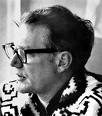
In 1962 Lac qui Parle County, Minn.-born poet Robert Elwood Bly (1926-) pub. his first book Silence in the Snowy Fields, followed by The Lion's Tail and Eyes: Poems Written Out of Laziness and Silence. In 1963 he pub. the essay A Wrong Turning in American Poetry in Choice mag., which claims that Am. verse is lacking in spirituality and "inwardness", and is cut off from the unconscious mind, going on to found the Mythopoetic Men's Movement that leads men away from political and social advocacy to performance of Native Am. rituals, illustrated in his biggest hit Iron John: A Book About Men (1990), which spends 62 weeks on the NYT bestseller list. In 1967 he pub. The Light Around the Body, which wins the 1968 Nat. Book Award for Poetry. In 1977 he pub. This Body is Made of Camphor and Gopherwood.

In 1963 Detroit, Mich.-born Jewish poet Philip Levine (1928-2015), known for his poems about working-class Detroit pub. his first poetry book On the Edge, followed by Not This Pig (1968) ("One of the best books of poetry to come out of the sixties" - James McMichael), which incl. "Coming Homeward from Toledo", "In a Grove Again", "A New Day", "The Rats", "The Book", "Commanding Elephants", "The Everlasting Sunday", "Blasting from Heaven". He follows with Pili's Wall (1971), Red Dust (1971), They Feed They Lion (1972), 1933 (1974), The Names of the Lost: Poems (Sept. 1, 1976), Ashes: Poems New and Old (1979), 7 Years from Somewhere (1979), One for the Rose (1981), Selected Poems (1984), Sweet Will (1985), A Walk With Tom Jefferson (1988), New Selected Poems (1991), What Work Is (1991), The Simple Truth (1994), Unselected Poems (1997), The Mercy (1999), Breath (2004), Stranger to Nothing: Selected Poems (2006), News of the World: Poems (2009), which incl. "Our Valley", "Unholy Saturday", "A Story", "New Year's Eve, in Hospital", "Before the War", "My Fathers, the Baltic", "Yakov", "Innocence", and The Last Shift: Poems (Apr. 3, 2018). In 2011-12 he becomes U.S. poet laureate #48.

In 1963 Maple Heights (near Cleveland), Ohio-born lesbian poet Mary Oliver (1935-) pub. her first poetry book No Voyage and Other Poems, followed by The River Styx, Ohio, and Other Poems (1972), The Night Traveler (1978), Sleeping in the Forest (1978), Twelve Moons (1979), and American Primitive (1983) (Pulitzer Prize). She follows with Dream Work (1986), which incl. "Morning Poem" ("Every morning/ the world/ is created"), Provincetown (1987), House of Light (1990), New and Selected Poems, Vol. 1 (1992), White Pine: Poems and Prose Poems (1994), which incl. "White Pine", Blue Pastures (1995), West Wind: Poems and Prose Poems (1997), Winter Hours: Prose, Prose Poems, and Poems (1999), The Leaf and the Cloud (2000), What Do We Know (2002), Owls and Other Fantasies: Poems and Essays (2003), Why I Wake Early: New Poems (2004), and Blue Ins: Poems and Essays (2004). "Far and away, this country's best-selling poet." (New York Times)

In 1964 Henry County, Ky.-born anti-war activist-novelist-poet Wendell Erdman Berry (1934-) pub. his first poetry book November Twenty Six Nineteen Hundred Sixty Three, illustrated by Ben Shahn, commemorating the death of Pres. JFK; "We know/ The winter earth/ Upon the body/ of the young/ President,/ And the early dark/ Falling"; he follows with The Broken Ground (1964). In 1998 he pub. A Timbered Choir: The Sabbath Poems, 1979-97, written "in silence, in solitude, and mainly out of doors," about "moments when heart and mind are open and aware."

On Jan. 1, 1966 Jackson, Miss.-born poet-playwright and short story writer Allen Turner Cassity (1929-2009) pub. his first book of poetry Watchboy: What of the Night. In 1973 he pub. Steeplejacks in Babel. In 1975 he pub. Yellow for Peril, Black for Beautiful, which incl. "Men of the Great Man", about Cecil Rhodes. In 1979 he pub. The Defense of the Sugar Islands; also Phaethon Unter den Linden. In June 1983 he pub. Keys to Mayerling. In 1984 he pub. The Airship Boys in Africa. On Jan. 1, 1986 he pub. Hurricane Lamp; incl. The Garden and the Gods; "Field glasses on the cocktail terrace, I,/ Rock climbers in my figure eighted sky." In 1991 he pub. Between the Chains; incl. Persistence of Memory; "What is it that a string around the figure says?/ Remember? No./ Remember to remember. It's a Fool's Regress." On Oct. 31, 2002 he pub. No Second Eden, which incl. "A Member of the Mystik Krewe", "The Metrist at the Operetta", "Stylization and Its Failures", and "WTC"; "Against the best advice, We put up Babel twice." "Human folly at its most grotesque extremes" (Keith Tuma); "Exotically formalist, passionately skeptical, dedicatedly agnostic" (Robert Huddleston).

In 1967 Manhattan, N.Y.-born street junkie poet James Dennis "Jim" Carroll (1949-2009) pub. his first poem Organic Trains, followed by 4 Ups and 1 Down (1970), Living at the Movies (1973), The Book of Nods (1986), Fear of Dreaming (1993), which is filmed in 1995 by John L'Ecuyer as "Curtis' Charm", and Void of Course: Poems 1994-1997. In 1978 he pub. the memoir The Basketball Diaries, which is filmed in 1995 starring Leonardo DiCaprio.

In 1967 Belgrade, Serbia-born poet Charles (Dusan) Simic (1938-) pub. his first poetry book What the Grass Says. In Oct. 1980 he pub. Classic Ballroom Dances. In 1982 he pub. Austerities. In 1983 he pub. Weather Forecast for Utopia and Vicinity: Poems 1967-1982. In 1985 he pub. Selected Poems, 1963–1983 (1986 Pulitzer Prize finalist). On Nov. 21, 1986 he pub. Unending Blues (1987 Pulitzer Prize finalist). In 1989 he pub. The World Doesn't End: Prose Poems (Pulitzer Prize). In 1999 he pub. Jackstraws: Poems; NYT notable book of the year; also Selected Early Poems, which incl. Tapestry; "It hangs from heaven to earth./ There are trees in it, cities, rivers,/ small pigs and moons. In one corner/ the snow falling over a charging cavalry,/ in another women are planting rice." In 2007 he becomes U.S. poet laureate #15.

In 1967 Kansas City, Mo.-born James Vincent Tate (1943-2015) pub. his first poetry book The Lost Pilot. On June 14, 1991 he pub. Selected Poems (Pulitzer Prize).

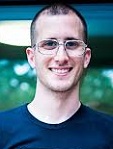
In 1968 New York City-born Jewish poet Louise Elisabeth Gluck (Glück) (1943-), daughter of Hungarian-born X-Acto Knife inventor Daniel Gluck ,known for waxing eloquent about her teenage eating disorder. pub. her first poetry book Firstborn, followed by The House on Marshland (Dec. 31, 1975), The Garden (1976), Descending Figure (Apr. 4, 1980), The Triumph of Achilles (1985), Arat (1990), and The Wild Iris (1992) (Pulitzer Prize). She follows with Mock Orange (1993), The First Four Books of Poems (1995), and Meadowlands (May 1, 1997), which interweaves Homer's "The Odyssey" with the dissolution of a contemporary marriage, "unanswerable/affliction of the human heart: how to divide/ the world's beauty into acceptable/ and unacceptable loves." She follows with Vita Nova (1999), The Seven Ages (2001) ("Earth will seduce you,/ it will ravish you,/ it will not keep you alive") ("I even loved a few times in my disgusing human way/ and like everyone I called that accomplishment") ("And from out of nowhere lovers came,/ people who still had bodies and hearts. Who still had/ arms, legs, mouths, although by day they might be/ housewives and businessmen") , Averno (2006), A Village Life (2009), Poems: 1962-2012 (2013), Faithful and Virtuous Night: Poems (2014) (Nat. Book Award). On Sept. 11, 2018 she and Max Ritvo (1990-2016) pub. The Final Voicemails: Poems. She becomes U.S poet laureate #42 in 2003-4.

In 1968 Detroit, Mich.-born Jewish leftist activist poet-novelist Marge Piercy (1936-) pub. her first poetry book Breaking Camp, followed by Hard Loving (1969), Barbie Doll (1971), To Be of Use ("The people I love the best/ jump into work head first/ without dallying in the shallows/ and swim off with sure strokes almost out of sight"), Living in the Open (1976), The Twelve-Spoked Wheel Flashing (1978), The Moon is Always Female (1980), Circles on the Water, Selected Poems (1982), My Mother's Body (1985), Mars and her Children (1992), What are Big Girls Made Of (1997), The Art of Blessing the Day: Poems with a Jewish Theme (1999), Colours Passing Through Us (2003), The Hunger Moon: New and Selected Poems, 1980-2010 (2012), and Made in Detroit (2015).

In 1968 Eatonton, Putnam County, Ga.-born poet-novelist Alice Malsenior Tallulah-Kate Walker (1944-) pub. her first poetry book Once, followed by Revolutionary Petunias and Other Poems (Mar. 21, 1973), Good Night, Willie Lee, I'll See You in the Morning (1979), Horses Make a Landscape Look More Beautiful (1985), Her Blue Body Everything We Know: Earthling Poems 1965-1990 Complete (1991), Absolute Trust in the Goodness of the Earth: New Poems (2003), A Poem Traveled Down My Arm: Poems and Drawings (Oct. 28, 2003), Her Blue Body Everything We Know: Earthling Poems 1965-1990 Complete (2004), There Is a Flower at the Tip of My Nose Smelling Me (May 9, 2006), We Are the Ones We Have Been Waiting for: Inner Light in a Time of Darkness (2007), Hard Times Require Furious Dancing: New Poems (2010), The World Will Follow Joy: Turning Madness into Flowers (2014), AND Taking the Arrow Out of the Heart (Oct. 2, 2018). In 1982 she pub. novel #4 The Color Purple, which wins the Pulitzer Prize, set in 1930s rural Ga., about Celie, her Pa, who raped her at age 14, her sister Nettie, Shug, and her forced marriage to "Mr. ---", along with black-on-black violence, incest, and lesbianism; Celie moves to Memphis and designs unisex pants; "I think it pisses God off if you walk by the color purple in a field somewhere and don't notice it"; filmed in 1988 by Stephen Spielberg.


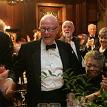
In 1969 St. Louis, Mo.-born writer-poet-entertainer Maya Angelou (Marguerite Ann Johnson) (1928-2014) (nickname comes from her older brother, who calls her "my-a-sister") (first black and first female street car conductor in San Francisco, Calif.) pub. the bestselling autobio. I Know Why the Caged Bird Sings, about her poor Southern Am. black upbringing, with title taken from the poem Sympathy by black poet Paul Laurence Dunbar (1872-1926); "One would say of my life, born loser, had to be, from a broken family, raped at eight, unwed mother of sixteen", causing her to become a role model for those wanting to make it big in publishing by making people feel sorry for them, er, for stirring stories of blacks struggling against white racism; she goes on to pub. five more autobios. (until 2002) with Random House ed. Robert Loomis (1926-), developing "a relationship that's kind of famous among publishers" (Angelou); incl. the poem I Know Why the Caged Bird Sings; "For the caged bird/ sings of freedom".

In 1969 Ames, Iowa-born Great Plains poet Theodore J. "Ted the Poet Man" Kooser (1939-) pub. his first poetry book Official Entry Blank, followed by 11 more, going on to become U.S. poet laureate in Oct. 2004 for two terms. In 1971 he pub. Grass County. In 1973 he pub. Twenty Poems. In 1974 he pub. A Local Habitation and a Name. In 1976 he pub. Not Coming to Be Barked At. On June 30, 1980 he pub. Sure Signs: New and Selected Poems. In 1985 he pub. One World at a Time. In 1986 he pub. The Blizzard Voices. In 1994 he pub. Weather Central - or, why I'm poet laureate of Nebraska? In 1995 he pub. A Book of Things. In 1999 he pub. Riding with Colonel Carter. In 2000 he pub. Winter Morning Walks: One Hundred Postcards to Jim Harrison.

In 1969 Newark, N.J.-born Charles Kenneth "C.K." Williams (1936-2015) pub. his first book of poetry Lies, which incl. A Day for Anne Frank (1968); "the Fellini of the written word" (Anne Sexton). He follows with I Am the Bitter Name (1972), With Ignorance (1977) (known for its extra-long lines), The Lark, the Thrush, and the Starling (1983), and Tar (1983); "The first morning of Three Mile Island: those first disquieting, uncertain, mystifying hours." He follows with Flesh and Blood (1987), Poems, 1963-1983 (1988), and Helen (1991); "There was more voice in her cough tonight: the first harsh, stripping sound would weaken abruptly,/ and he'd hear the voice again, not hers, unrecognizable, its notes from somewhere else,/ someone saying something they didn't seem to want to say, in a/ tongue they hadn't mastered,/ or a singer, diffident and hesitating, searching for a place to start an unfamiliar melody." A Dream of Mind, Poems (1992), Selected Poems (1994), New & Selected Poems (1995), The Vigil (1997), and Repair (1999) (Pulitzer Prize). He follows with The Singing (2003), Collected Poems (2006), Creatures (2006), Wait (2010), Crossing State Lines (2011), Writers Writing Dying (2012), All at Once (2014), Selected Later Poems (2015), and Falling Ill: Last Poems (posth.) (Jan. 3, 2017).
In the 1970s the Language Poets postmodernist avant garde group of poets emerges in the U.S., incl. Bruce Andrews, Rae Armantrout, Charles Bernstein, Clark Coolidge, Alan Davies, Tina Darragh, Carla Harryman, Lyn Hejinian, Susan Howe, Tom Mandel, Bob Perelman, Ron Silliman, Barrett Watten, and Hannah Weiner, producing poetry that challenges the "natural" presence of a speaker behind the text, emphasizes disjunction and the materiality of the signifier, and likes long prose poetry; In 1971 they found This mag. (until 1982); in Feb. 1978 they found L=A=N=G=U=A=G=E mag. (until Oct 1981).
In 1970 the $50K biennial Neustadt Internat. Prize for Lit. is established by the U. of Okla., publisher of World Lit. Today, becoming known as the "American Nobel" after multiple awardees get awarded Nobels; the first U.S. winner is poet Elizabeth Bishop (1976).

On Apr. 1, 1970 Pickwick Dam, Tenn.-born poet Charles Wright (1935-), a big fan of William Faulkner pub. his first poetry book The Grave of the Right Hand, followed by Hard Freight (Sept. 1, 1973), Bloodlines (Mar. 15, 1975), China Trace (1977), The Southern Cross (Oct. 1, 1981), Country Music: Selected Early Poems (1982) (Nat. Book Award), The Other Side of the River: Poems (Jan. 12, 1984), Zone Journals (Jan. 1, 1988), which incl. "Yard Journal", "A Journal of English Days", "March Journal", "A Journal of True Confessions", "Night Journal", Xionia (1990), The World of the Ten Thousand Things: Poems 1980-1990 (1990), and Chickamauga (1995). He follows with Black Zodiac (Apr. 1, 1997) (Pulitzer Prize), which incl. "Apologia Pro Vita Sua" ("Journal and landscape/ ?Discredited form, discredited subject matter?; I tried to resuscitate them both, breath and blood,/ making them whole again"), "Meditation on Form and Measure" ("Time and light are the same thing somewhere behind our backs"). He follows with Appalachia (1998), North American Bear (1999), Negative Blue: Selected Later Poems (2000), A Short History of the Shadow (2002), Buffalo Yoga (2004), The Wrong End of the Rainbow (Apr. 1, 2005), and Scar Tissue: Poems (July 25, 2006), which incl. "Confessions of a Song and Dance Man", "Scar Tissue II" ("Hard to imagine that no one counts,/ that only things endure./ Unlike the seasons, our shirts don't shed,/ Whatever we see does not see us,/ however hard we look,/ The rain in its silver earrings against the oak trunks,/ The rain in its second skin"). He follows with Littlefoot: A Poem (2007), Sestets: Poems (2009), Outtakes (2010), Bye-and-Bye: Selected Late Poems (Mar. 27, 2012), and Caribou: Poems (2014). He becomes U.S. poet laureate #50 in 2014-5. "Illuminates and exalts the entire astonishing spectrum of existence." (Booklist)

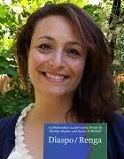
On Apr. 8, 1974 after separating from her gay black hubby (since 1961) sci-fi writer Samuel R. Delaney (1942-), Bronx, N.Y.-born Jewish lesbian poet Marilyn Hacker (1942-) Presentation Piece: Poems (debut) (Nat. Book Award); "This is not fresh meat. It was kept overnight/ in a tab of brine."; "Meet me tonight under your tongue." She follows with Separations (Apr. 12, 1976), Taking Notice (1980), Assumptions (1985), Love, Death, and the Changing of the Seasons (1986), a long lesbian love affair in rhymed sonnets and villanelles, Going Back to the River (1990), The Hang-Glider's Daughter: New and Selected Poems (1991), Selected Poems, 1965-1990 (1994), Winter Numbers: Poems (1995), Squares and Courtyards: Poems (2000), Desesperanto: Poems 1999-2002 (2003), First Cities: Collected Early Poems 1960-1979 (2003), Essays on Departure: New and Selected Poems (2006), Names: Poems (2009), and A Stranger's Mirror: New and Selected Poems 1994-2014 (2015). On June 18, 2014 she and Kuwaiti-born Palestinian poet Deema Shehabi (1970-) pub. Diaspo/Renga: a collaboration in alternating renga.
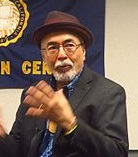
In 1974 Fowler, Calif.-born Juan Felipe Herrera (1948-) pub. his first poetry book Rebozos of Love, followed by Exiles of Desire (June 1, 1985), Facegames (1987), Akrilica (1989), Memoria(s) from an Exile's Notebook on the Future (1993), The Roots of a Thousand Embraces: Dialogues (1994), Night Train to Tuxtla: New Stories and Poems (Aug. 1, 1994), which incl. "Night Train to Tuxtla", "Aids Hearing in the Metropolis", "How to Do the Merengue in the End Zone", "M.o.c.o.s. (mexicans or Chicanos or Something)', "Mariachi Drag Star", "Rolling to Taos On An Aztec Mustang", "Zoot Suit On a Bed of Spanish Rice", Calling the Doves/El Canto de Las Palomas (Sept. 1995), Love After the Riots (1996), Mayan Drifter: Chicago Poet in the Lowlands of America (Jan. 27, 1997), Border-Crosser with a Lamborghini Dream (Dec. 1, 1998), which incl. "punk half panther" ("Meet my barriohood, meet me/ with the froth i pick up everyday & everyday/ i wipe away with ablution apologia & a smirk, then/ a smile on my Cholo-Millennium liberation jacket"), Loteria Cards and Fortune Poems: A Book of Lives (Jan. 1, 2001), CrashBoomLove: A Novel in Verse (Sept. 1, 1999), The Upside Down Boy/El Nino de Cabeza (2000), Thunderweavers/Tejedoras de Rayos (Feb. 1, 2000), about four related indios from the devastated village of Acteal, Chiapas ("Blood travels past the kitchens/the television and an altar of maize fade./Travels along the wound of Mexico/an X in the center of its heart"), Giraffe on Fire: Poems (Dec. 1, 2000), Grandma & Me at the Flea/Los Meros Meros Remateros (2002), Notebooks of a Chile Verde Smuggler (May 1, 2002), Super Cilantro Girl (2003, Coralito's Bay/Bahia de Coralito (June 2004), Cinnamon Girl: Letters Found Inside a Cereal Box (2005), Downtown Boy (Nov. 1, 2005), 187 Reasons Mexicano's Can't Cross the Border: Undocuments 1971-2007 (2007), Half of the World in Light: New and Selected Poems (2008), Notes on the Assemblage (Sept. 15, 2015), and Jabberwalking (Mar. 13, 2018). He becomes U.S. poet laureate #51 in 2015-17 (first Hispanic-Am. or Chicano).
In 1974 Naropa Inst. (U.) is founded in fairy tale Boulder, Colo., "the Mountain" while TLW is living there attending the U. of Colo. (1971-5) by Tibetan Buddhist teacher Chogyam (Chögyam) Trungpa (1939-87), named after 11th cent. Indian Buddhist sage Naropa (1016-1100); Beat Generation poets Allen Ginsberg and Anne Waldman found the Jack Kerouac School of Disembodied Poetics there.

In 1975 feminist Creek poet Joy Harjo (1951-) pub. her debut The Last Song, seeking "another way of seeing language and another way of using it that wasn't white European male".
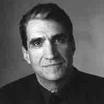
In 1975 Long Branch, N.J.-born Jewish poet-critic Robert Pinsky (1940-) pub. his first poetry book Sadness and Happiness ("What [these poems] are attempting is important: nothing less than the recovery for language of a whole domain of mute and familiar experience" - Hugh Kenner), followed by An Explanation of America (1979), History of My Heart: Poems (1984), The Want Bone (1990) ("It's largely about making, which is also destroying. Civilization in all of its horror and ugliness and its beauty consists of, you know, it's really all the work of Shiva, the Hindu god with the hammer who makes and breaks any artifact you look at"), The Figured Wheel New and Collected Poems 1966-1996 (1996), Jersey Rain (2000), Gulf Music (2007), Selected Poems (2011), and At the Foundling Hospital (2016). In 1995 he pub. The Inferno of Dante: A New Verse Translation. In 1997-2000 he becomes U.S. poet laureate #41. "It is refreshing to find a poet who is intellectually interesting and technically first-rate. Robert Pinsky belongs to tht rarest category of talents, a poet-critic." (Robert Lowell) "Since the death the Robert Lowell in 1977, no single figure has dominated American poetry the way that Lowell, or before him Eliot, once did... But among the many writers who have come of age in our fin de siecle, none have succeeded more completely as poet, critic, and translator than Robert Pinsky." (James Longenbach, The Nation)

In 1976 Trenton, N.J.-born Ntozake Shange (Paulette L. Williams) (1948-) (Zulu "She who comes with her own things" "she who walks with lions") pub. her first poetry book Melissa & Smith, followed by Natural Disasters and Other Festive Occasions (1977), Nappy Edges (1978), A Daughter's Geography (1983), From Okra to Greens (1984), Riding' the Moon in Texas: Word Paintings (1987), The Love Space Demands (a continuing saga) (1987), Three Pieces (1992), I Live in Music (1994), and The Sweet Breath of Life: A Poetic Narrative of the African-American Family (2004).
In 1977 the Miss. Review pub. the article "Freedom and Form: American Poets Respond", commenting on the New Formalism (Neoformalism) movement in Am. poetry that is attempting to return to traditional poetic forms; in May 1985 the article "The Yuppie Poet" is pub. in the AWP (Assoc. of Writers and Writing Programs) Newsletter, coining the term "New Formalism"; in 1987 Dana Gioia pub. "Notes on the New Formalism", containing the soundbyte: "The real issues presented by American poetry in the Eighties will become clearer: the debasement of poetic language; the prolixity of the lyric; the bankruptcy of the confessional mode; the inability to establish a meaningful aesthetic for new poetic narrative and the denial of a musical texture in the contemporary poem. The revival of traditional forms will be seen then as only one response to this troubling situation"; poets incl. Charles Martin, Robert B. Shaw, and Timothy Steele; in 1980 Mark Jarman and Robert McDowell found The Reaper mag. to promote the New Formalism (until 1990); in 1981 Jane Greer founds Plains Poetry Journal to pub. new work in this genre; in 1984 McDowell founds Story Line Press to pub. New Formalist poets; in 1990 William Baer founds the biannual mag. The Formalist (ends 2004), which pub. poems by Fred Chappelll, Mona Van Duyn, John Hollander, Donald Justice, Maxine Kumin, James Merrill, M.S. Merwin, Howard Nemerov, Karl Shapiro, Louis Simpson, W.D. Snodgrass, May Swenson, John Updike, Derek Walcott, Richard Wilbur et al.; meanwhile in the late 1970 the gay-friendly New Narrative movement is launched in San Francisco, Calif. by poets Robert Gluck and Bruce Boone, attempting to representive subjective experience honestly without pretense, using fragmentation, identity politics, meta-text, and explicit descriptions of sex and physicality; poets incl. Kathy Acker, Michael Amnasen, Dodie Bellamy, Dennis Cooper, Sam D'Allesandro, Gary Indiana, Kevin Killian, and Cookie Mueller.

In 1977 New York City-born poet William James "Billy" Collins (1941-) pub. his first poetry book Pokerface, followed by Video Poems (1980), The Apple That Astonished Paris (1988), and The Art of Drowning (June 29, 1995), which incl. "The Art of Drowning"; ("Lovely poems - lovely in a way almost nobody's since Roethke's are. Limpid, gently and consistently startling, more serious than they seem, they describe all the worlds that are and were and some others besides." - John Updike). He follows with Picnic, Lightning (1998), based on Vladimir Nabokov's "Lolita" ch. 2: "My very photogenic mother died in a freak accident (picnic, lightning) when I was three", Questions About Angels: Poems (Jan. 7, 1999), Taking Off Emily Dickinson's Clothes: Selected Poems (May 19, 2000), Sailing Alone Around the Room: New and Selected Poems (2001), Nine Horses (2002), The Trouble with Poetry and Other Poems (2005), She Was Just Seventeen (Sept. 20, 2006), Ballistics: Poems (2008), which incl. "Bathtub Families", "The Poems of Others", "August" ("The first one to rise on a Sunday morning,/ I enter the white bathroom,/ trying not to think of Christ or Wallace Stevens"), "The Effort" ("Would anyone care to join me/ in flicking a few pebbles in the direction/of teachers who are fond of asking the question: 'What is the poet trying to say?'"), "The Four-Moon Planet" ("what if you couldn't tell them apart/ and they always rose together/ like pale quadruplets entering a living room"... "But think of two lovers on a beach,/ his arm around her bare shoulder,/ thrilled at how close they were feeling tonight/ while he gazed at one moon and she another"), Horoscopes for the Dead (2011), Aimless Love: New and Selected Poems (2013), Voyage (Oct. 1, 2014) ("When he has finished reading, the boy becomes the book"), and The Rain in Portugal (2016). He becomes U.S. poet laureate #41 in 2001-3. "[Billy Collins] is able, with precious few words, to make me cry. Or laugh out loud. He is a remarkable artist. To have such power in such an abbreviated form is deeply inspiring." (J.J. Abrams) "[Billy Collins’] poetry presents simple observations, which create a shared experience between Collins and his readers, while further revealing how he takes life's everyday humdrum experiences and makes them vibrant." (The Times Leader) "[Billy] Collins has earned almost rock-star status... He knows how to write layered, subtly witty poems that anyone can understand and appreciate - even those who don't normally like poetry." (Christian Science Monitor) "I have never before felt possessive about a poet, but I am fiercely glad that Billy Collins is ours." (Annie Proulx)

In 1979 Burlington, Vt.-born New Formalist poet Timothy Steele (1948-) pub. his first poetry book Uncertainties and Rest, followed by Sapphics against Anger and Other Poems (1994), The Color Wheel (Oct. 10, 1994), which incl. "Aurora", "Vermont Spring", "Cory in April", "Fae", "Georgics", "Luck", "Pacific Rim", "Beatitudes, While Setting Out the Trash", "The Library", "Portait of the Artist as a Young Child" ("You're off and traveling through the wheel/ Of contrasts and of complements./ Where every shade divides and blends./ Where you find those that you prefer,/ Where being is not linear,/ But bright and deep, and never ends"), Sapphics and Uncertainties (Aug. 1, 1995), and Toward the Winter Solstice: New Poems (Apr. 26, 2006). "Readers of poetry with a feel for formal verse can already find an interesting and gratifying wealth of invention in Steele's three volumes of poems. Those who care for explanations of versification and poetic history will find his two volumes of prose useful and readable. Those arbiters of and reporters on shifting tastes will have to take him as a reference point to orient any serious discussion of the renascent strains of traditional verse in American poetry." (Joseph O. Aimone)

In 1980 San Francisco, Calif.-born Berkeley, Calif.-raised Calvinist-turned-atheist feminist poet Sharon Olds (nee Sharon Stuart Cobb) (1942-) pub. her first poetry book Satan Says, which incl. the sections "Daughter", "Woman", "Mother", "Journeys". She follows with The Dead and the Living (1983) (Nat. Book Critics Circle Award), which incl. "My Father's Breasts" ("the black charge of the heart within... the smell of cracked pepper and turned earth"), "Grandmother Love Poem" ("under the salt and pepper, she'd show me her true color... in the smoky light she would show me the pure black"), "Connoisseuse of Slugs" ("draw aside the ivy, breathe odor of the wall"), "The Sign of Saturn", The One Girl at the Boys' Party. She follows with The Gold Cell (Feb. 12, 1987), The Matter of This World (1987), The Sign of Saturn (1991), The Father (1992), The Welspring (1996), Blood, Tin, Straw (1999), The Unswept Room (2002), Strike Sparks: Selected Poems 1980-2002 (2004), One Secret Thing (2008), Stag's Leap (Sept. 4, 2012) (Pulitzer Prize), about her 1997 divorce, and Odes (2016). In 2005 First Lady Laura Bush invites her to the Nat. Book Festival in Washington, D.C., and she declines and pub. an open letter in the Oct. 10 issue of The Nation, with the soundbyte: "So many Americans who had felt pride in our country now feel anguish and shame for the current regime of blood, wounds and fire. I thought of the clean linens at your table, the shining knives and the flames of the candles, and I could not stomach it".

In 1983 New Providence, Iowa-born Quaker poet Amy Clampitt (1920-94) pub. her first poetry book The Kingfisher, which is called "One of the most brilliant debuts in American history" by Edmund White, and catapults her into the front rank of U.S. poets; also The Summer Solstice, and What the Light Was Like. In 1987 she pub. Archaic Figure. In 1990 she pub. Westward; also Manhattan: An Elegy, and Other Poems. In 1994 she pub. A Silence Opens. In 1997 she posth. pub. The Collected Poems of Amy Clampitt.
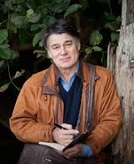
In 1984 after emigrating to the U.S. in 1981, Mirfield, Yorkshire-born poet David Whyte ((1955-), known for poetry based on "the conversational nature of reality", forever waxing lyrical about his "Wordsworthian childhood" in West Yorkshire and his dear old Irish mother pub. his first poetry book Songs for Coming Home, turning into a touring speaker in 1987 at major corps. incl. Boeing, AT&T, NASA, Toyota, RAF, and Arthur Anderson. In 1990 he pub. Where Many Rivers Meet, followed by Fire in the Earth (Jan. 1, 1992), The House of Belonging (1996), which incl. "The House of Belonging" ("There is no house/ like the house of belonging"), "The Truelove", Loaves and Fishes ("This is not/ the age of information,/ This is not/ the age of information./ Forget the news, and the radio, and the blurred screen/This is the time of loaves and fishes./ People are hungry, and one good word is bread/ for a thousand"), Everything is Waiting for You (2003), River Flow: New & Selected Poems 1984-2007 (2007) (rev. ed. 2012), Pilgrim (May 1, 2012), The Sea in You: Twenty Poems of Requited and Unrequited Love (2015), and The Bell and the Blackbird (Apr. 19, 2018). In 1994 he pub. The Heart Aroused: Poetry & the Preservation of the Soul in Corporate America (rev. ed. 1996), which becomes a #1 NYT bestseller.
In 1985 the first annual $50K Whiting Awards, presented to 10 emerging Am. writers by the Mrs. Giles Whiting Foundation are awarded to to Raymond Abbott, Stuart Dybek, Wright Morris, Howard Norman, James Robison, and Austin Wright for fiction, and Douglas Case, Jorie Graham, Linda Gregg, and James Schuyler for poetry.

In 1985 Bronx, N.Y.-born Jewish short story writer Grace Paley (nee Goodside) (1922-2007) pub. her first poetry book Leaning Forward, followed by Long Walks and Intimate Talks (1991), New and Collected Poems (1992), and Begin Again: Collected Poems (2000).

In 1986 Akron, Ohio-born poet Rita Frances Dove (1952-) pub. Thomas and Beulah (Pulitzer Prize); a married black couple (her grandparents) migrate from the Am. South to the urban North in the early 20th cent. In 1989 he pub. Grace Notes, followed by Selected Poems (1993), Mother Love (1995), On the Bus with Rosa Parks (1999), American Smooth (2004), Sonata Mulattica: A Life in Five Movements and a Short Play (2009), and Collected Poems 1974-2004 (2016). In 1993-5 she becomes the first African-Am. and youngest U.S. poet laureate.
In 1986 the Ruth Lilly Poety Prize is established by Eli Lilly heiress Ruth Lilly (1915-2009), awarding $100K to a living U.S. poet whose "lifetime accomplishments warrant extraordinary recognition", becoming the top award for U.S. poets; the first winner is Adrienne Rich, followed by Philip Levine, Anthony Hecht, Mona Van Duyn, Hayden Carruth, David Wagoner, John Ashbery, Charles Wright, Donald Hall, A.R. Ammons, Gerald Stern, William Matthews, W.S. Merwin, and Maxine Kumin (1999).
In 1987 the first Aiken Taylor Award for Modern Am. Poetry by the Sewanee Review of the Univ. of the South is awarded to Howard Nemerov, followed by Richard Wilbur (1988), Anthony Hecht (1989), W.S. Merwin (1990), John Frederick Nims (1991), Gwendolyn Brooks (1992), George Starbuck (1993), Wendell Berry (1994), and Maxine Kumin (1995).
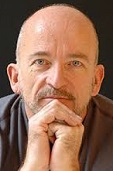
On Aug. 1, 1987 Maryville, Tenn.-born gay poet Mark Doty (1953-) pub. his first poetry book Turtle, Swan, followed by the poem "Tiara" in "Poets for Life: Seventy-Six Poets Respond to AIDS" (1990), criticizing the accusation "he asked for it". He follows with Bethlehem in Broad Daylight (Feb. 1, 1991), My Alexandria: Poems (Jan. 1, 1993) (Nat. Book Critics Circle Award), written after his gay bud Wally Roberts tested positive for HIV, which incl. "Chanteuse" (how New York and its drag queens and other homos is "my false, my splendid chanteuse"), "Esta Noche", "Fog", "Bill's Story", "With Animals". Atlantis (Sept. 1, 1995), which incl. "Atlantis" ("Now the tide's begun/ its clockwork turn, pouring,/ in the day's hourglass/ toward the other side of the world,/ and our dependable marsh reappears/ ...And our ongoingness,/ what there'll be of us? Look,/ love, the lost world/ rising from the waters again: our continent, where it always was..."), "Migratory" ("I was so filled with longing// --is that what sound is for?--/ I seemed to be nowhere at all"), "Homo Will Not Inherit" (I'll tell you what I'll inherit: the margins"). Sweet Machine (1998), Murano: Poem (2000), Source (2001), School of the Arts (2005), and Fire to Fire: New and Selected Poems (2008) (Nat. Book Award) ("The poem wants the impossible; the poem wants a name for the kind nothing at the core of time") ("All smolder and oxblood, these flowerheads, flames of August: fierce bronze, or murky rose, petals concluded in gold—/ And as if fire called its double down the paired goldfinches come swerving quick on the branching towers, so the blooms sway with the heft of hungers indistinguishable, now, from the blossoms") ("Sometimes we wake not knowing how we came to lie here, or who has crowned us with these temporary, precious stones") ("And why did a god so invested in permanence choose so fragile a medium, the last material he might expect to last?") He follows with Paragon Park (2012), Theories and Apparitions (2008), A Warm, A Flock, A Host (2013), and Deep Lane: Poems (2015). "Doty is always searching for beauty in a world that can be tragic or simply mundane." (Newsday mag.)
In 1988 the $3K annual Poet's Prize is founded by Robert McDowell, Frederick Morgan, and Louis Simpson for the best Am. poetry book pub. two years prior to the award year as selected by a committee of 20 poets; the first winner is Julia Randall for "Moving in Memory" (1987), followed by Andrew Hudgins for "After the Lost War: A Narrative" (1988), Miller Williams for "Living on the Surface" (1989), Mark Jarman for "The Black Riviera" (1990), Adrienne Rich for "Atlas of the Difficult World" (1991), Maxine Kumin for "Looking for Luck" (1992), Jared Carter for "After the Rain" (1993), and Marilyn Hacker for "Selected Poems 1965-1990" (1994).
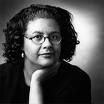
In 1990 Harlem, N.Y.-born African-Am. poet-playwright-writer Elizabeth Alexander (1962-), daughter of U.S. Army secy. Clifford Alexander Jr. pub. her first poetry book The Venus Hottentot, which incl. "Today's News" ("I didn't want to write a poem that said 'blackness/ is,' because we know better than anyone/ that we are not one or ten or ten thousand things/ Not one poem". She follows with Body of Life (1997), Antebellum Dream Book (2001), American Sublime (2005), which incl. "Soyinka and Senghor", "Etheridge Knight, from prison", "Amistad", "Tina Green", "Smile", "Notes From.", "Ars Poetica" ("'Poetry,' I shouted, 'Poetry,'/ I screamed, 'Poetry,/ changes none of that/ by what it says/ or how it says, none/ But a poem is a living thing/... and as life/ it is all that can stand/ up to violence.'"), American Blue: Selected Poems (2006), Miss Crandall's School for Young Ladies & Little Misses of Color (w/Marilyn Nelson) (Sept. 1, 2007), about Prudence Crandell and her school for African-Am. women in 1833 Canterbury, Conn. and Praise Song for the Day (2009); on Jan. 20, 2009 she recites it at Pres. Barack Obama's pres. inauguration, becoming the 4th poet after Robert Frost (1961), Maya Angelou (1993), and Miller Williams (1997). She follows with Crave Radiance: New and Selected Poems 1990-2010 (Nov. 13, 2012).
In 1994 the biennial PEN/Voelcker Award for Poetry for an Am. poet whose distinguished and growing body of work represents a notable and accomplished presence in Am. lit. is first awarded to Jane Kenyon, followed by Franz Wright (1996), C.K. Williams (1998), Heather McHugh (2000), Frederick Seidel (2002), Robert Pinsky (2004), Linda Gregg (2006), Kimiko Hahn (2008), Marilyn Hacker (2010), Toi Derricotte (2012), Frank Bidart (2014), Ed Roberson (2016), and Kamau Brathwaite (2018).

In 2003 Falmouth, Mass.-born Fairfield, Calif.-raised poet Tracy K. Smith (1972-) pub. her first poetry book The Body's Question, followed by Duende (2007), Life on Mars (May 10, 2011) (Pulitzer Prize), about her father, who worked on the Hubble Space Telescope and died in 2008, and Wade in the Water (2018). In 2017 she becomes U.S. poet laureate #52.